Politics and Protest at the Olympics
1906 – 2024
The International Olympic Committee says the games are not meant to be political. But governments and athletes have frequently used the Olympics to make statements through boycotts and protests.
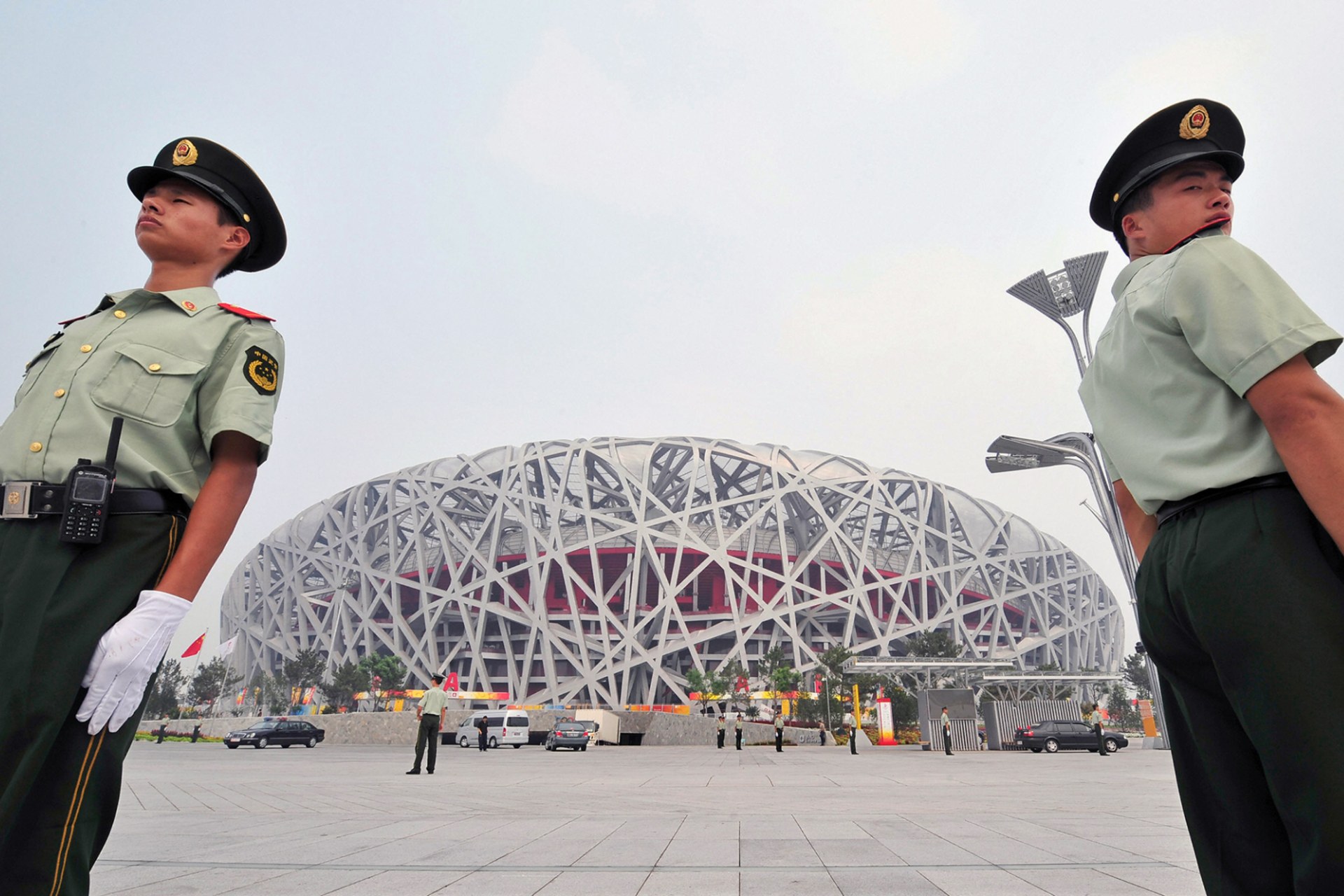
By experts and staff
- Updated
By
- CFR Editors
1906
The First Modern Protest
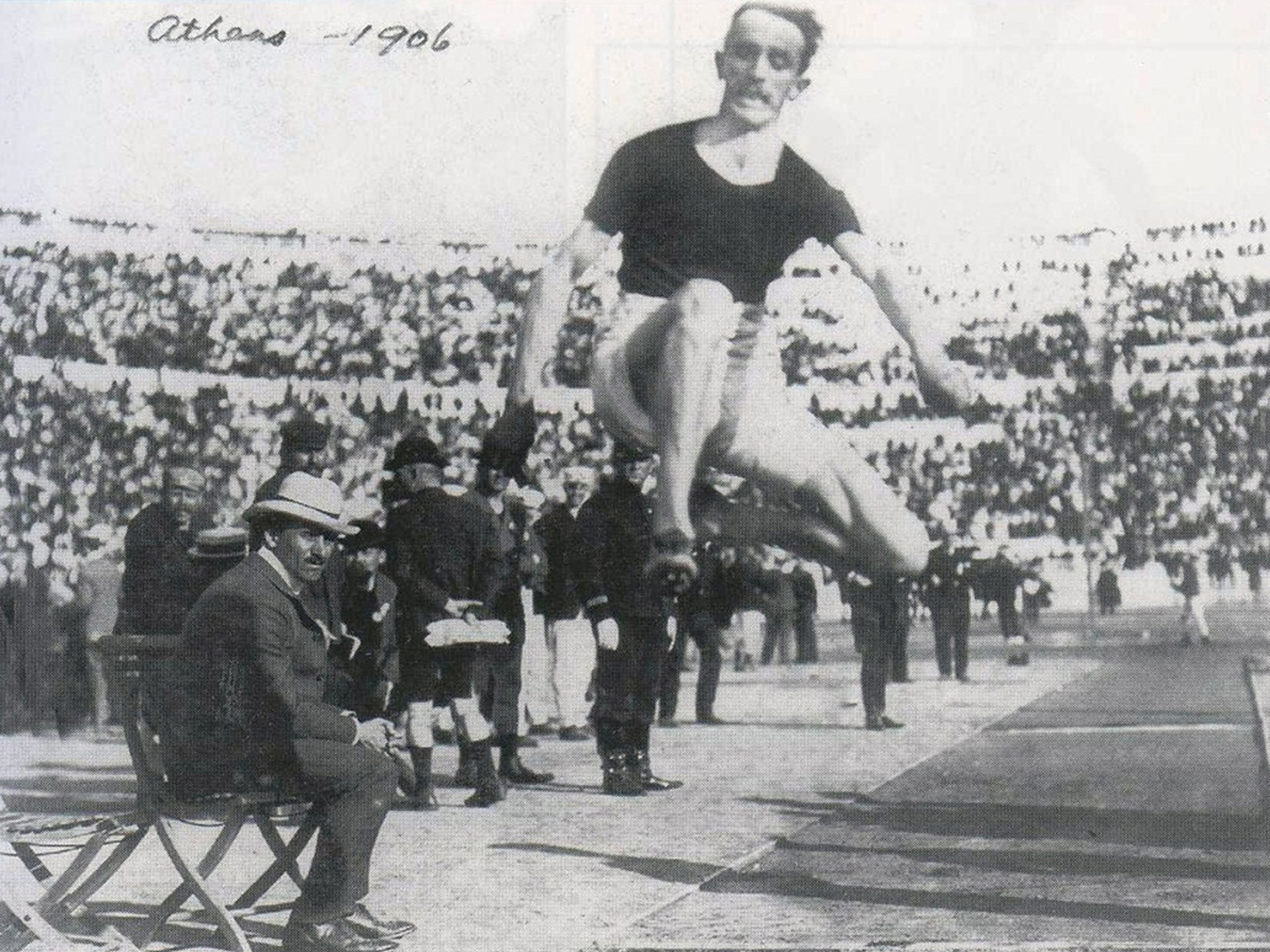
Peter O’Connor, an Irish track-and-field athlete, competes for Great Britain in the Athens games and wins a gold medal in the triple jump. To protest being considered a British competitor, he climbs up the Olympic flagpole with an Irish flag. The games are officially called the 1906 Intercalated Games because they are held on a different schedule than the one set by the International Olympic Committee (IOC).
1920
Recovery and Remembrance
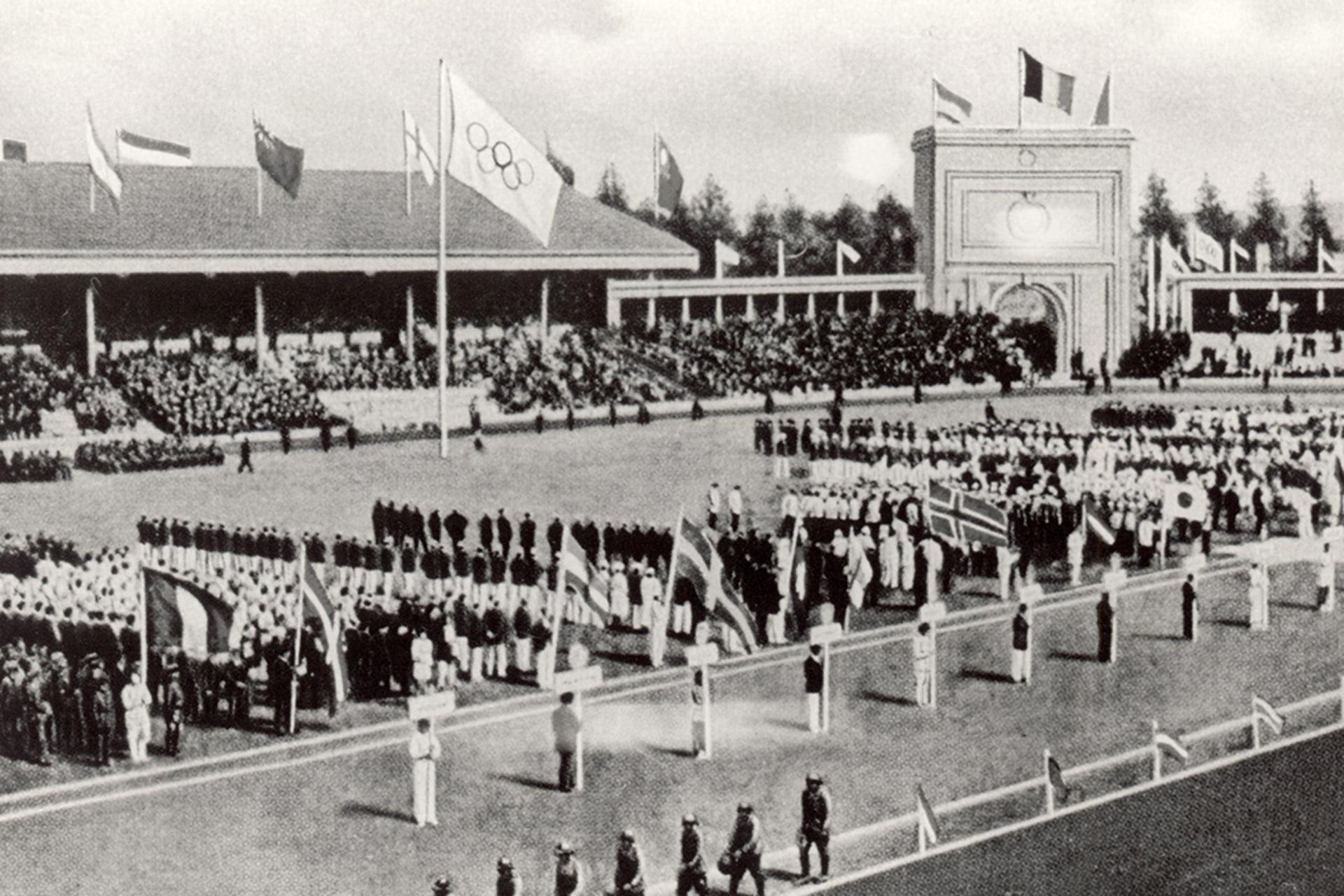
Taking place after World War I and the last wave of the 1918 flu pandemic, the games in Antwerp, Belgium, focus on remembering those killed and moving forward. During the games, the Olympic flag, which shows five interlocking rings as a symbol of the five continents, and the Olympic oath make their first appearance. The countries defeated during the war—Austria, Bulgaria, Germany, Hungary, and the Ottoman Empire—are not invited to attend. The newly formed Soviet Union decides not to participate.
1936
The Nazi Olympics
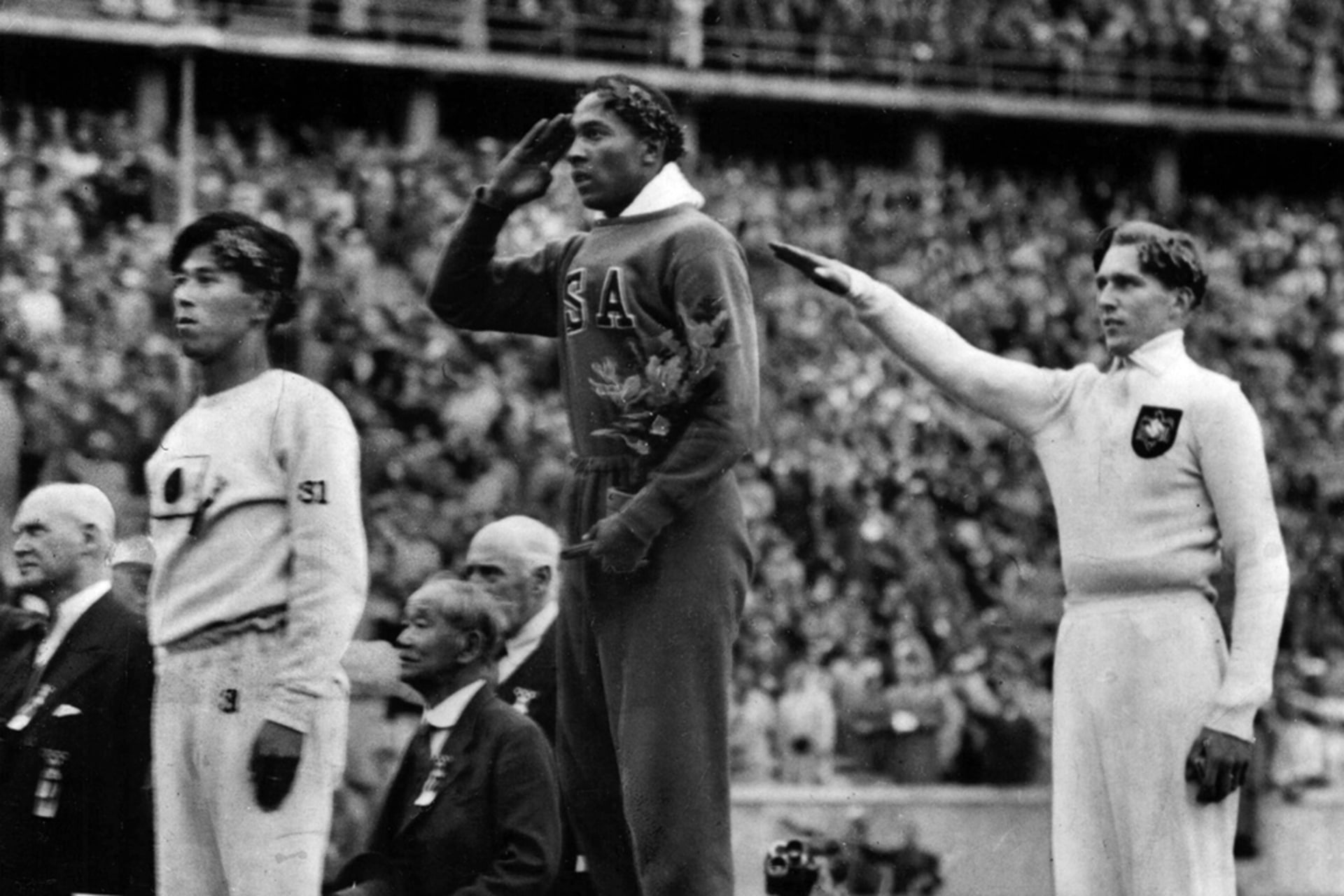
The IOC awards both the 1936 Winter and Summer Olympics to Germany before the Nazis take full control of the country in 1933. Several countries, including the United States, threaten to boycott the summer games in Berlin, but they later decide to attend. During the games, Adolf Hitler’s ministry of propaganda attempts to spread his theory of racial supremacy. Germany wins the most medals—eighty-nine—but the United States dominates the track-and-field events, with Black athlete Jesse Owens winning four gold medals. Together, Black American athletes earn fourteen medals, undermining propaganda about so-called Aryan superiority.
1940
Japan’s Forfeiture
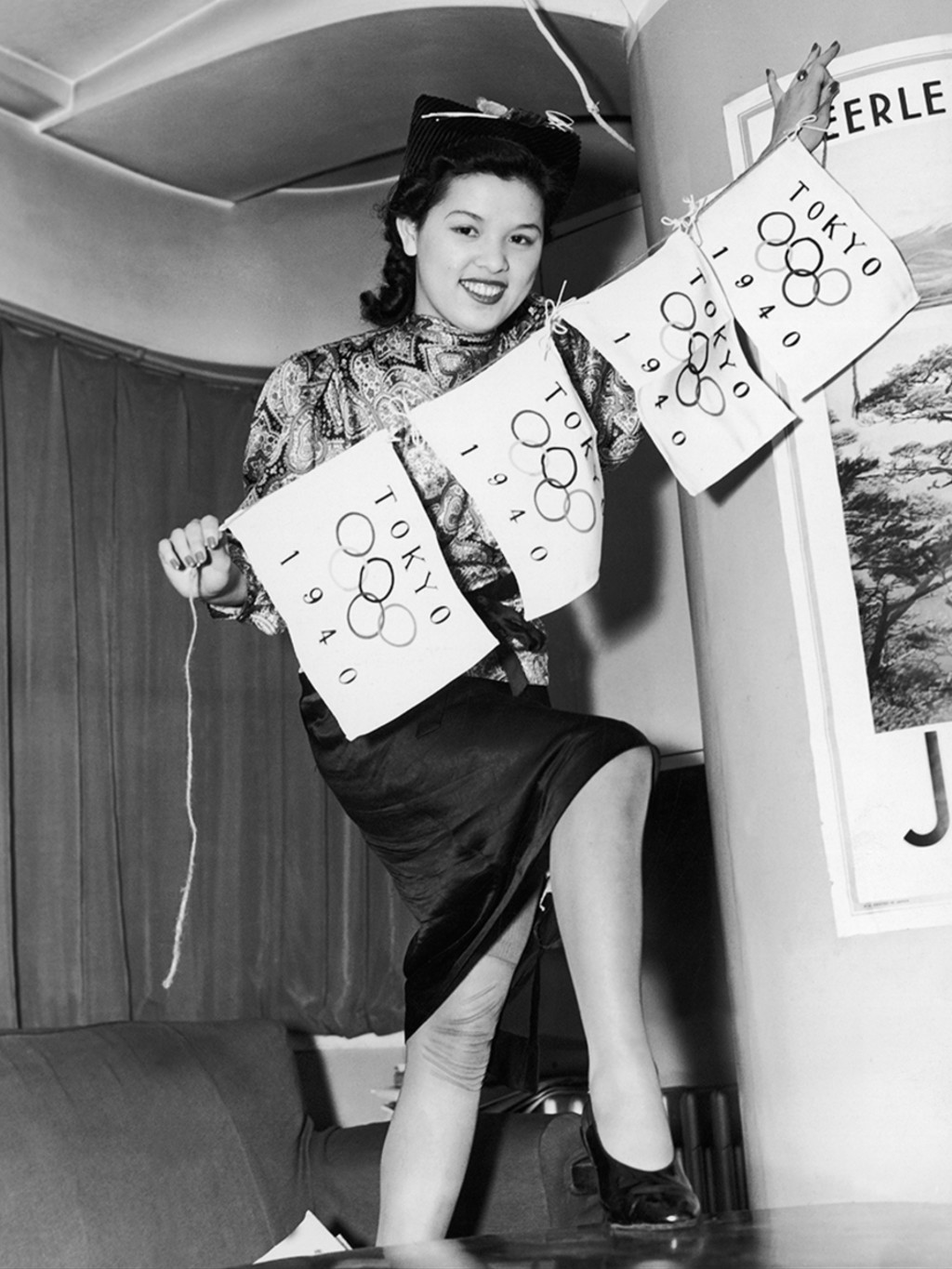
In 1936, the IOC awards the next summer and winter games to Japan. Japanese officials hope to improve the country’s image after facing international scorn for invading Manchuria in northeastern China in 1931 and pulling out of the League of Nations in 1933. But by 1937, Japanese lawmakers call to postpone the games as the country enters into war with China and as the United Kingdom (UK) considers a boycott. In 1938, Japan forfeits its role as host of the games. Eventually, both the 1940 and 1944 Olympics are canceled amid World War II.
1948
Symbol of Legitimacy
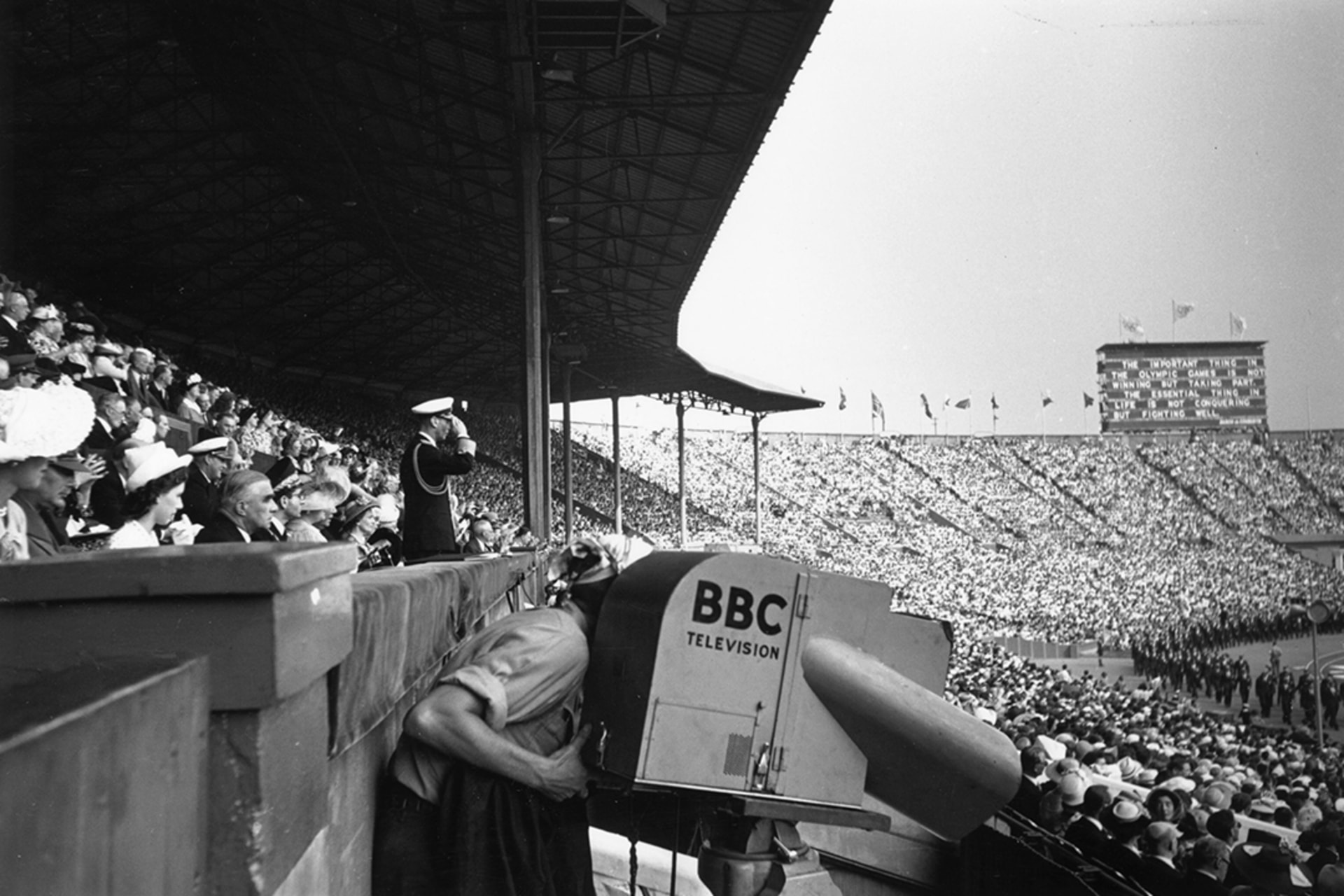
The UK hosts the 1948 games, viewing them as an achievement following the suffering of the war years. By this point, participation in the Olympics symbolizes political recognition and legitimacy for many countries. (These are the first games to be televised, heightening the global appeal.) The Soviet Union refuses to attend, partly over concerns that its athletes will not win in many events, while Japan and Germany are not invited. Czechoslovak gymnast Marie Provaznikova becomes the first athlete to defect from a communist country during the Olympics.
1952
Cold War Rivalry
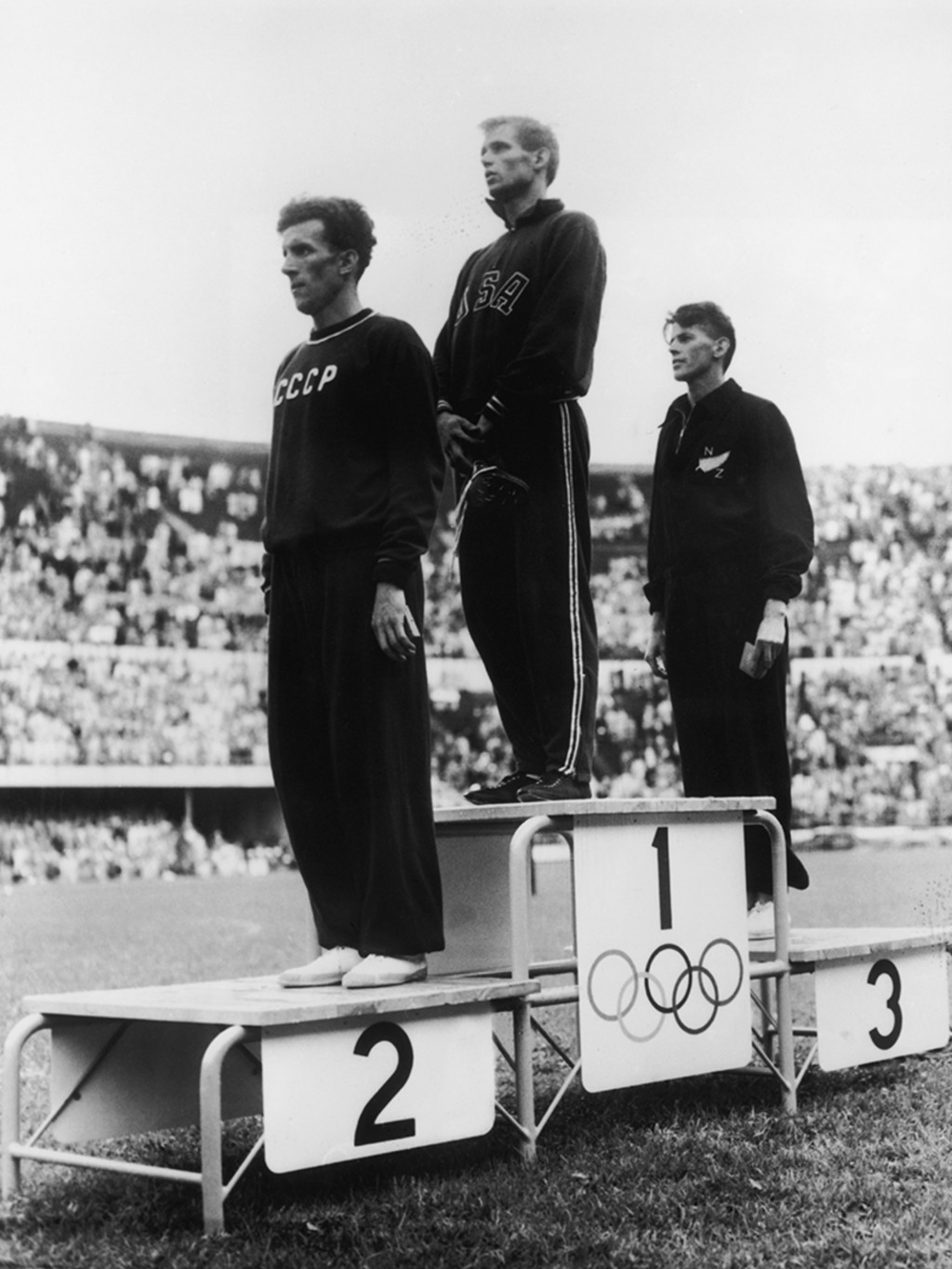
For the first time, the Soviet Union competes in the Olympics. Held in Helsinki, Finland, at the start of the Cold War, the games are portrayed by media outlets worldwide as a competition between free countries and communist countries. The Soviet Union wins seventy-one medals, the second-highest medal count of the games after the United States.
1956
The First Boycotts
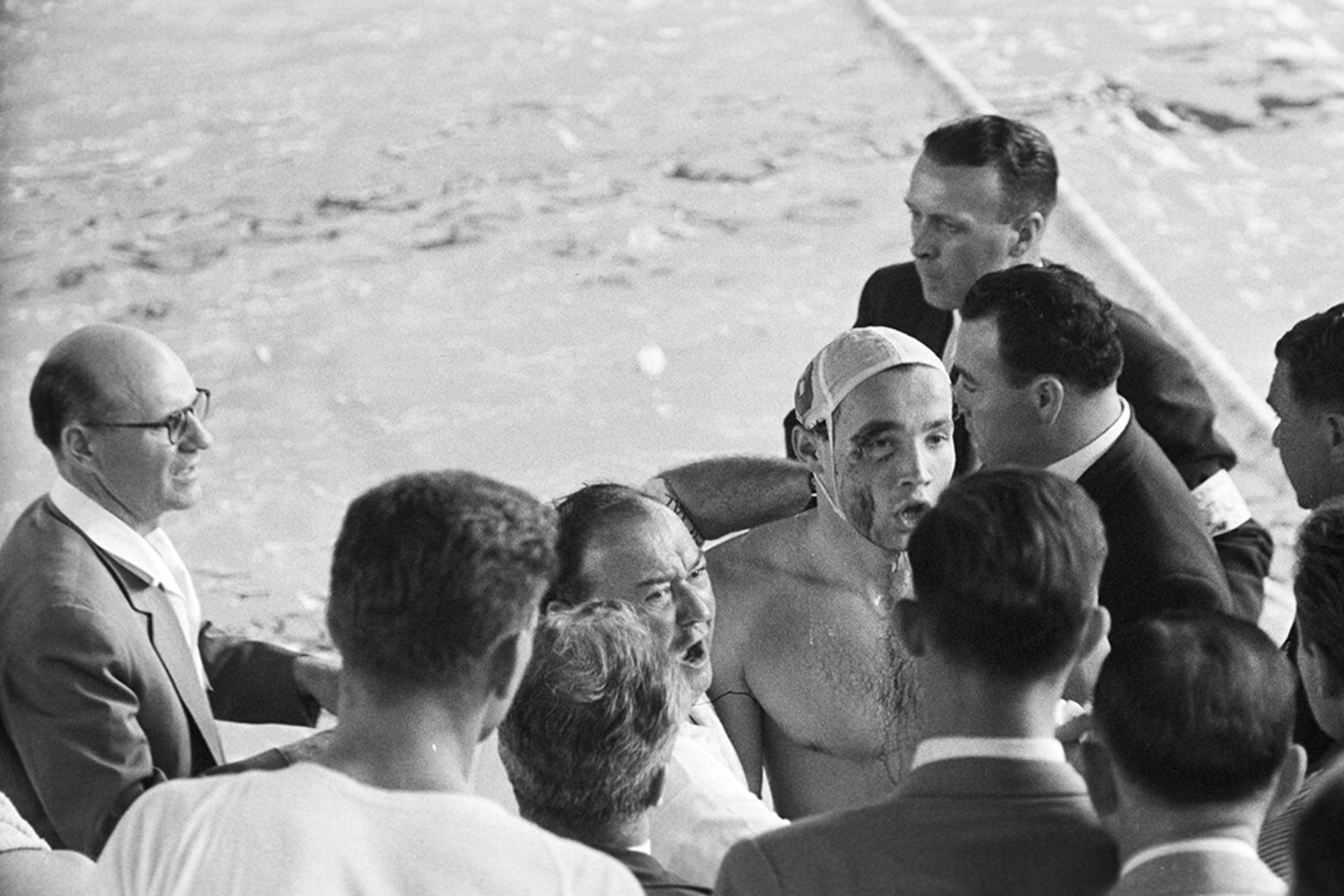
The Melbourne Olympics is the first time that nations boycott the games. China boycotts because the IOC decides to include Taiwan, while the Netherlands, Spain, and Switzerland do so to show support for Hungary following the Soviet invasion there. Tensions between Hungary and the Soviet Union come to a head during the games when a brawl erupts between their water polo teams. Egypt, Iraq, and Lebanon also boycott to protest the invasion of Egypt by France, Israel, and the UK over Cairo’s nationalization of the Suez Canal.
1960
Controversy Over Taiwan’s Name
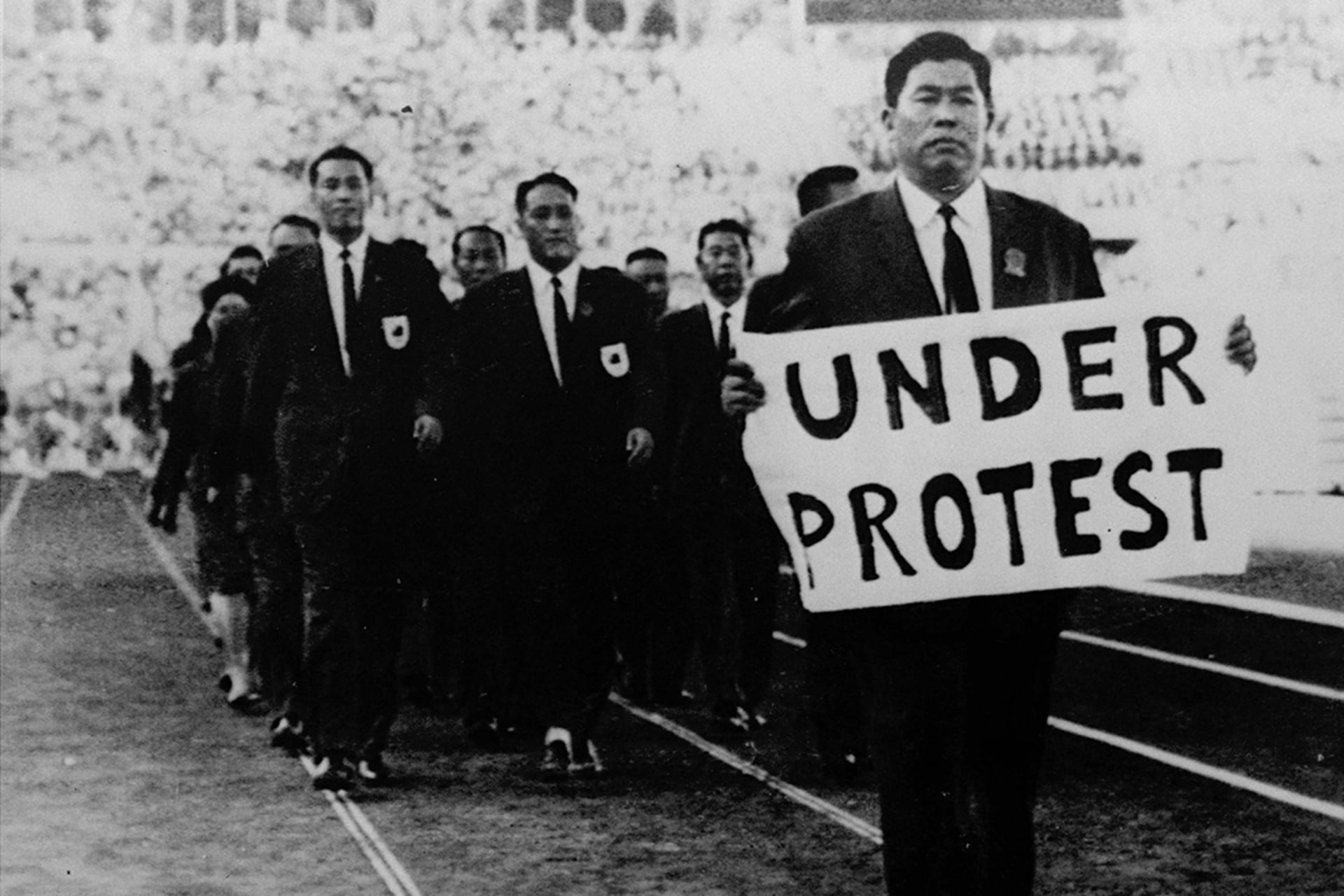
Taiwan protests because the IOC forces it to compete under the name Formosa, instead of the Republic of China. During the opening ceremony in Rome, Taiwan’s athletes enter with no name on their uniforms.
1964
Japan’s Reemergence
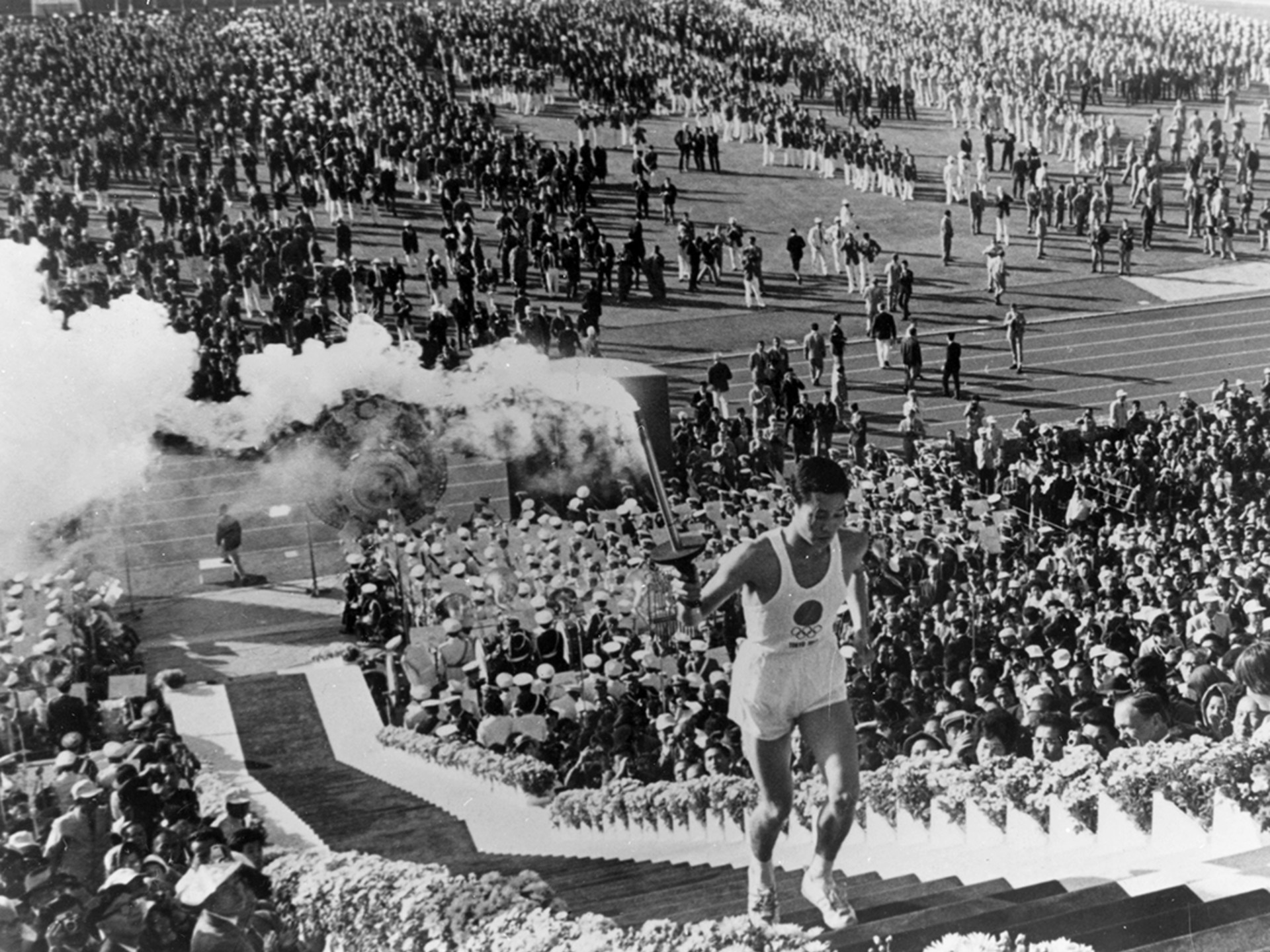
As host, Japan aims to showcase its progress since World War II, spending some $4 billion to rebuild Tokyo ahead of the games. In a symbol of peace, student Yoshinori Sakai, who was born on the day that Hiroshima was destroyed by an atomic bomb in 1945, is chosen to be the final torchbearer. The IOC does not invite apartheid South Africa because the country’s Olympic committee refuses to denounce segregation in sports. South Africa is excluded from the games for the next two decades.
1968
Black Power Protest
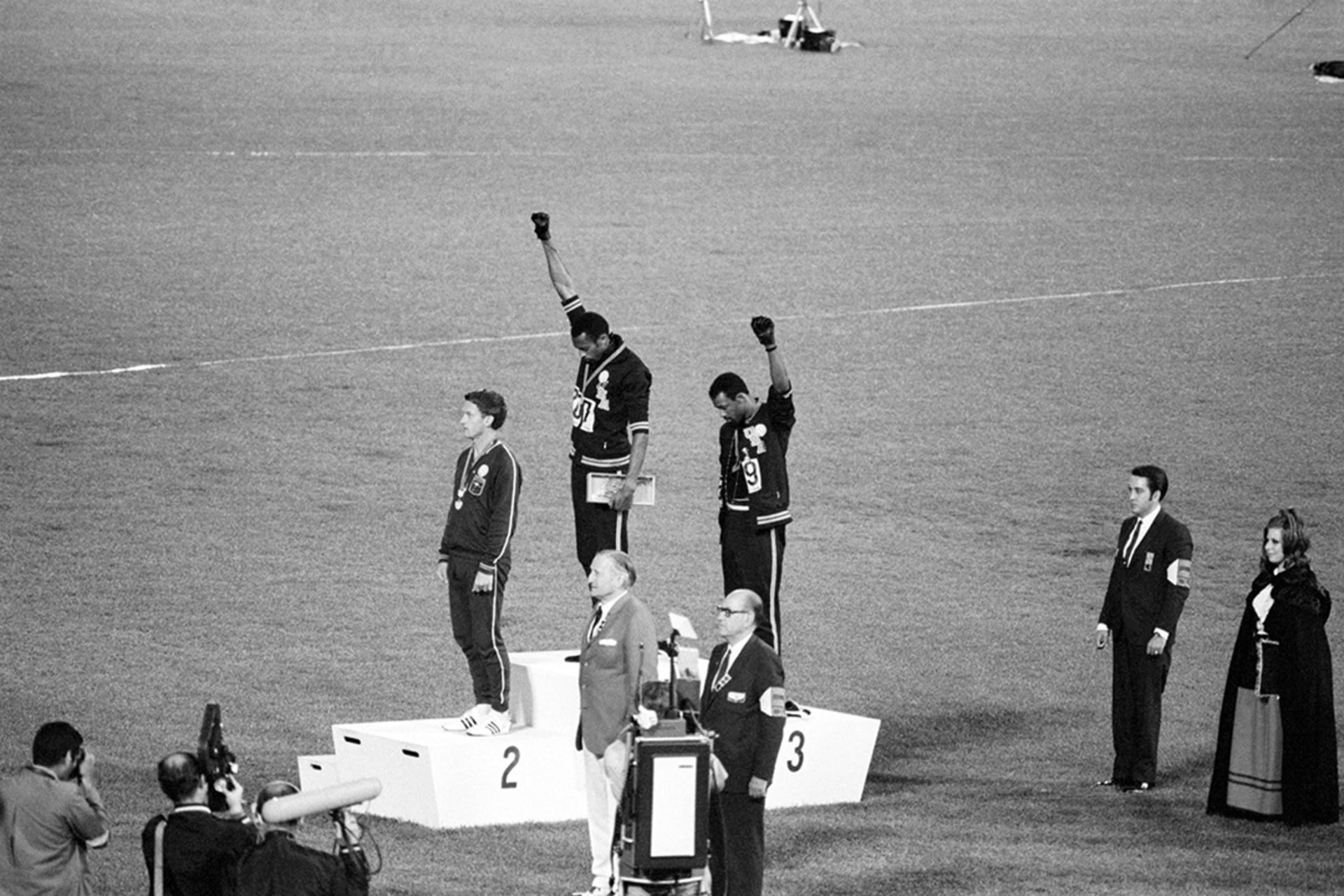
Held in Mexico City, the Olympics occur at the height of the Civil Rights Movement in the United States. Tommie Smith and John Carlos, U.S. track athletes who win gold and bronze medals, respectively, raise their hands in the Black power salute on the podium while the national anthem plays. In response, the head of the U.S. Olympic committee kicks them off the team and sends them back to the United States.
1972
Massacre in Munich
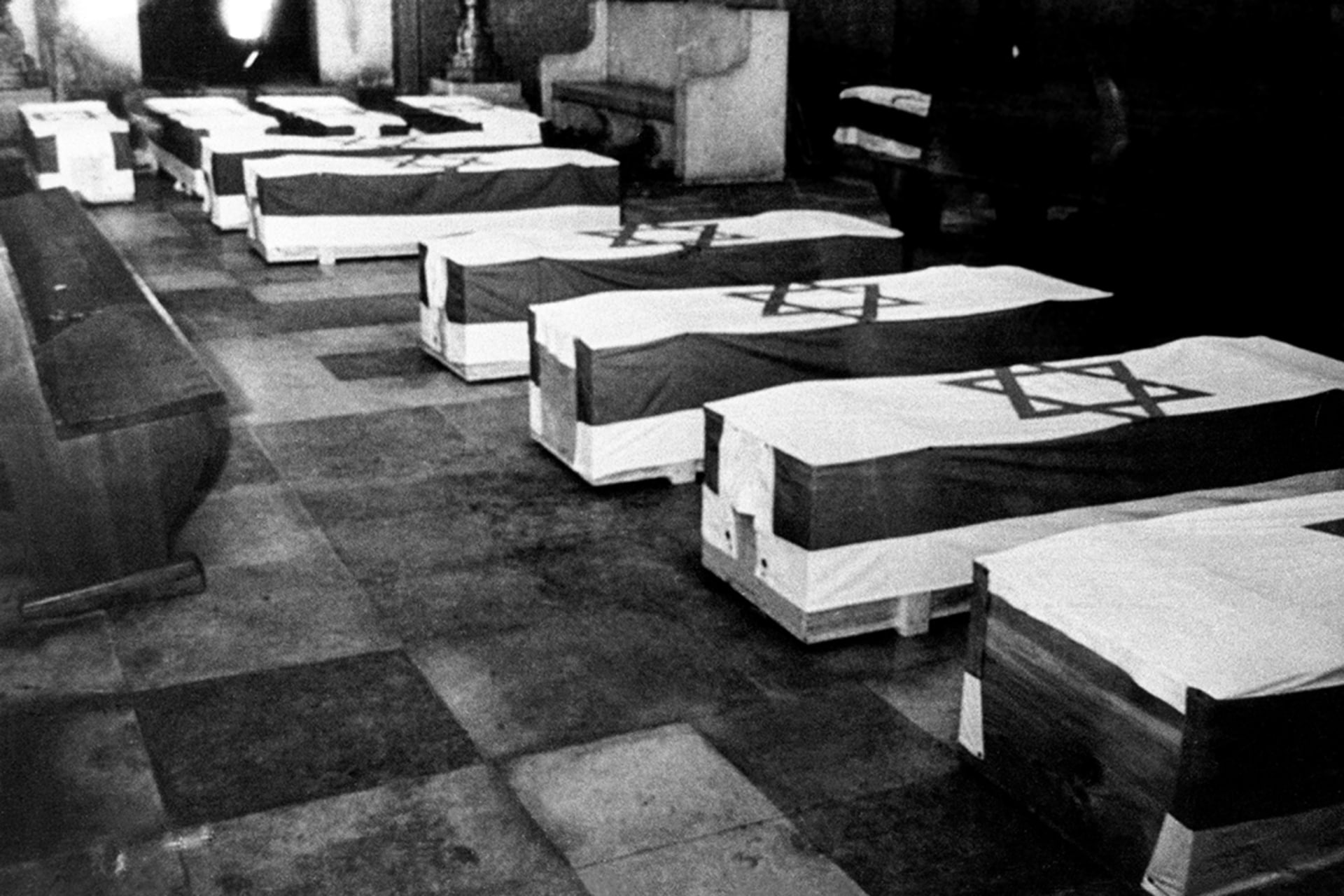
Members of the Black September movement, a militant faction of Palestinian leader Yasir Arafat’s Fatah party, storm the Olympic Village, kill an Israeli athlete and a coach, and take nine hostages. They demand the release of hundreds of Palestinian prisoners in Israel, but Israel refuses to negotiate. A botched rescue attempt by German officials later in the day at the Munich airport results in the deaths of all the hostages and five of their captors. The saga is broadcast all over the world.
1976
Boycott Over Racial Segregation
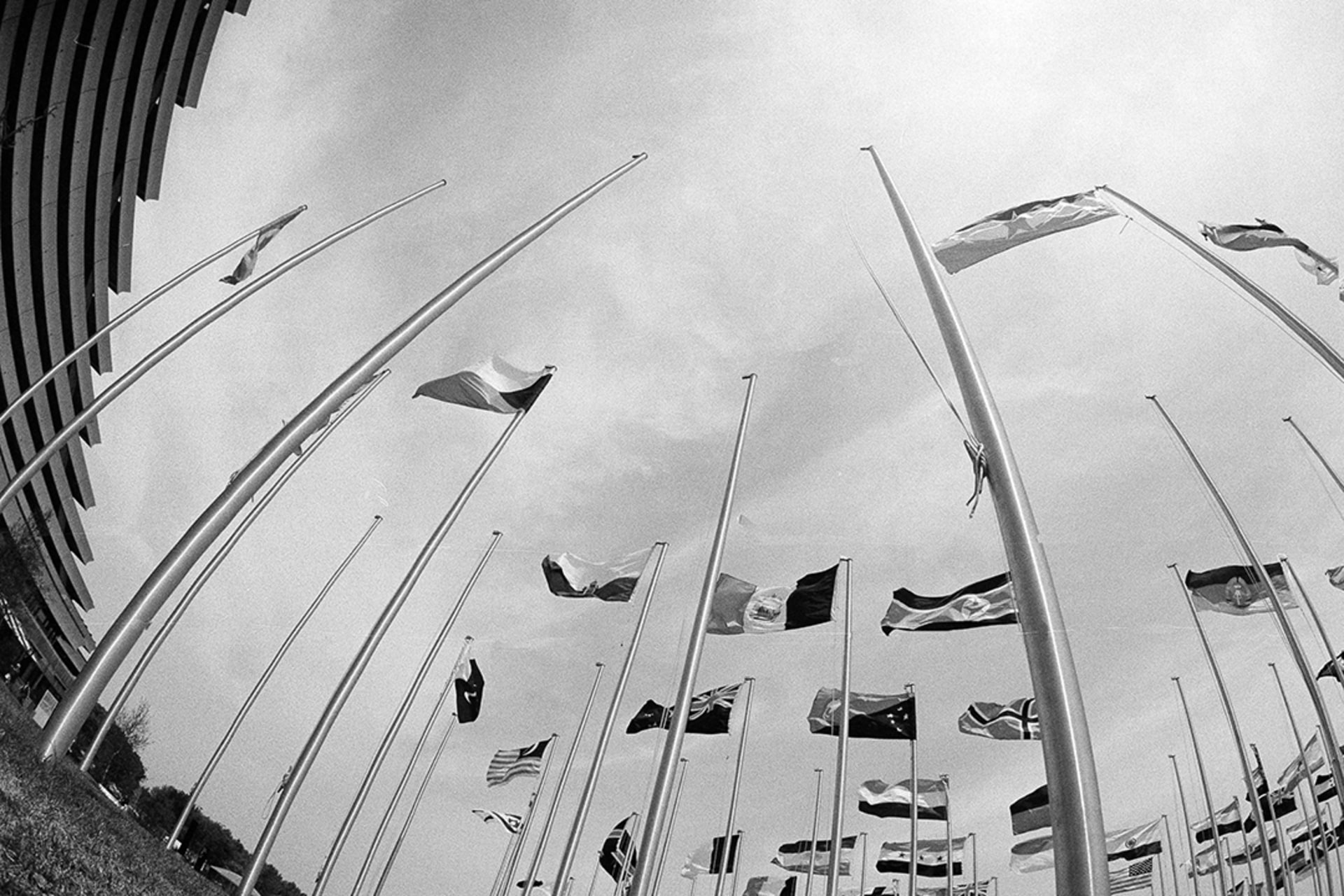
More than twenty African countries stage a last-minute boycott of the Montreal Olympics after the IOC allows New Zealand to compete. The nations had called for the IOC to ban New Zealand after its rugby team played in racially segregated South Africa. Separately, Taiwan withdraws from the games after it is again denied the right to compete as the Republic of China.
1980
No-Show in Moscow
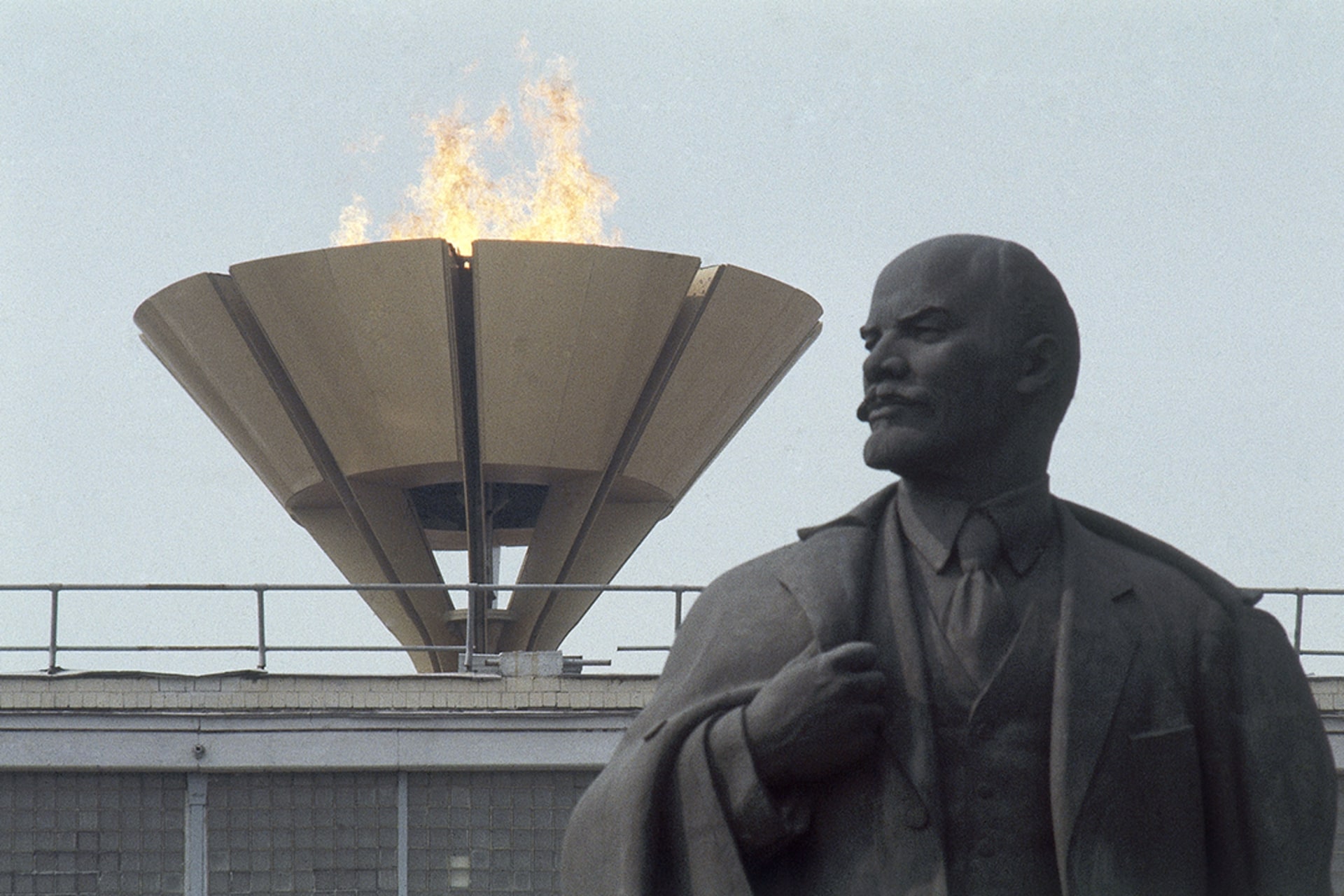
During the 1980 Winter Olympics in Lake Placid, New York, U.S. President Jimmy Carter starts a campaign to boycott the Summer Olympics in Moscow in protest of the Soviet Union’s invasion of Afghanistan. More than sixty countries join the United States, but a number of U.S. allies, including Finland, France, Ireland, Italy, New Zealand, Spain, Sweden and the UK, compete. Teams from fifteen countries march in the opening ceremony with the Olympic flag, rather than their national flags, as a form of protest.
1984
Soviet Retaliation
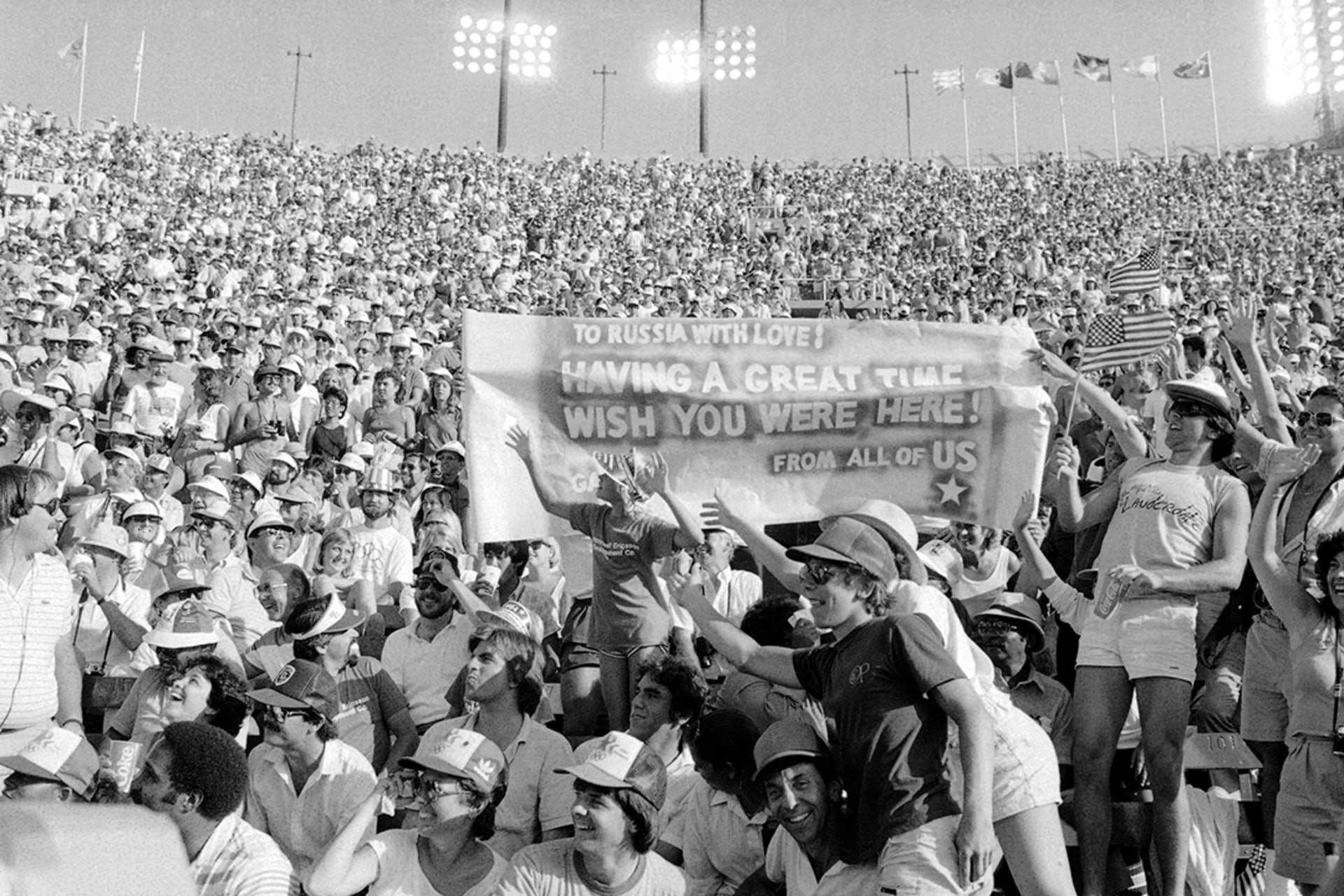
The Soviet Union leads a boycott of the summer games held in Los Angeles, California. Most of the Warsaw Pact nations refuse to compete. Cuba and East Germany, both athletic powerhouses, also do not send athletes to the United States. Romania is the only Soviet-bloc country to attend. The People’s Republic of China joins for the first time since 1952. Taiwan participates under the name Chinese Taipei, which athletes still compete under today.
1988
Divided Korea
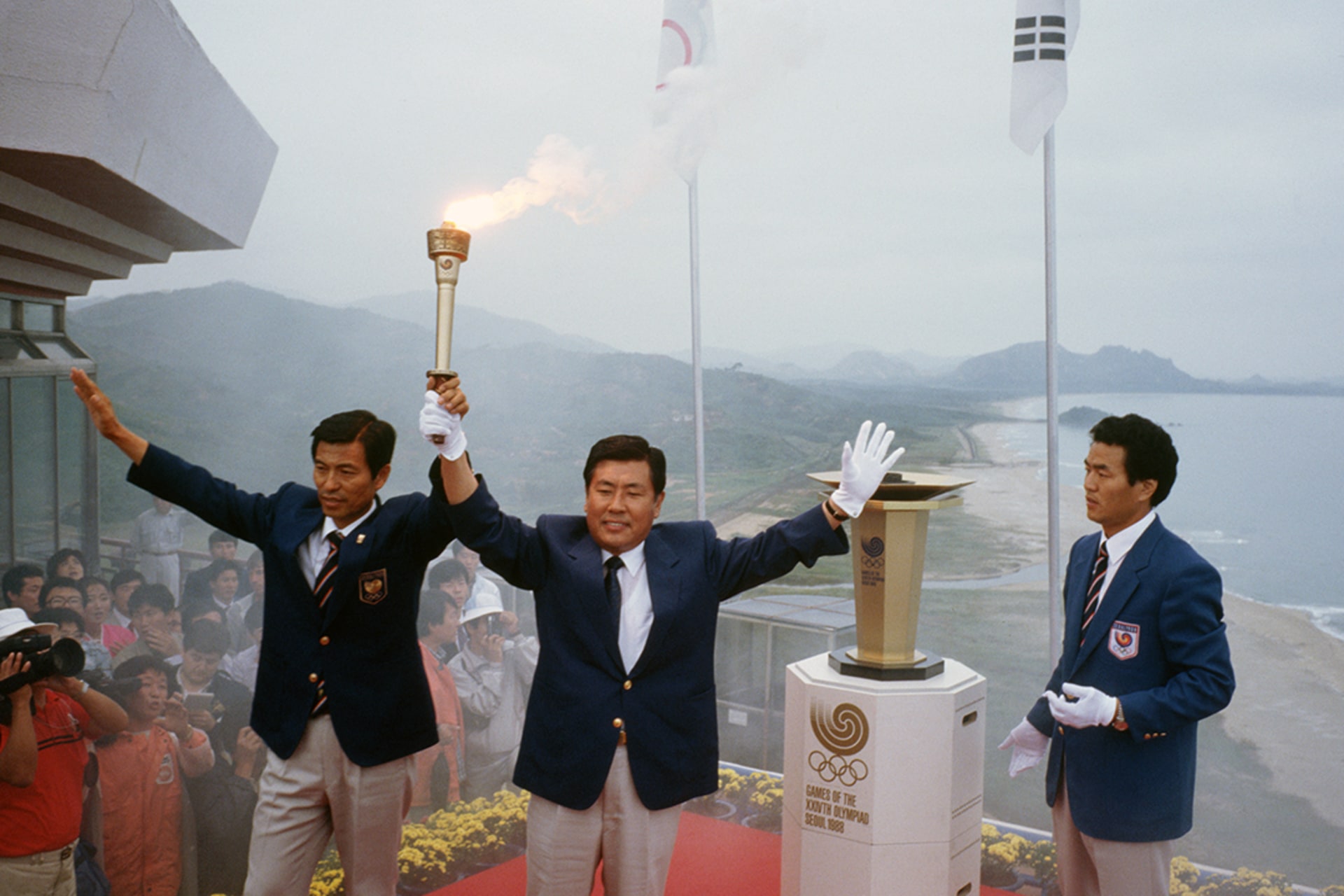
The IOC’s choice of South Korea as host stirs controversy because many communist countries have diplomatic relations only with North Korea. South Korea, effectively a dictatorship, holds its first democratic elections ahead of the games. North Korea suggests that it should be a cohost, but the IOC rejects the idea. North Korea refuses to participate, and Cuba and Nicaragua boycott to show solidarity.
1992
Post–Cold War Olympics
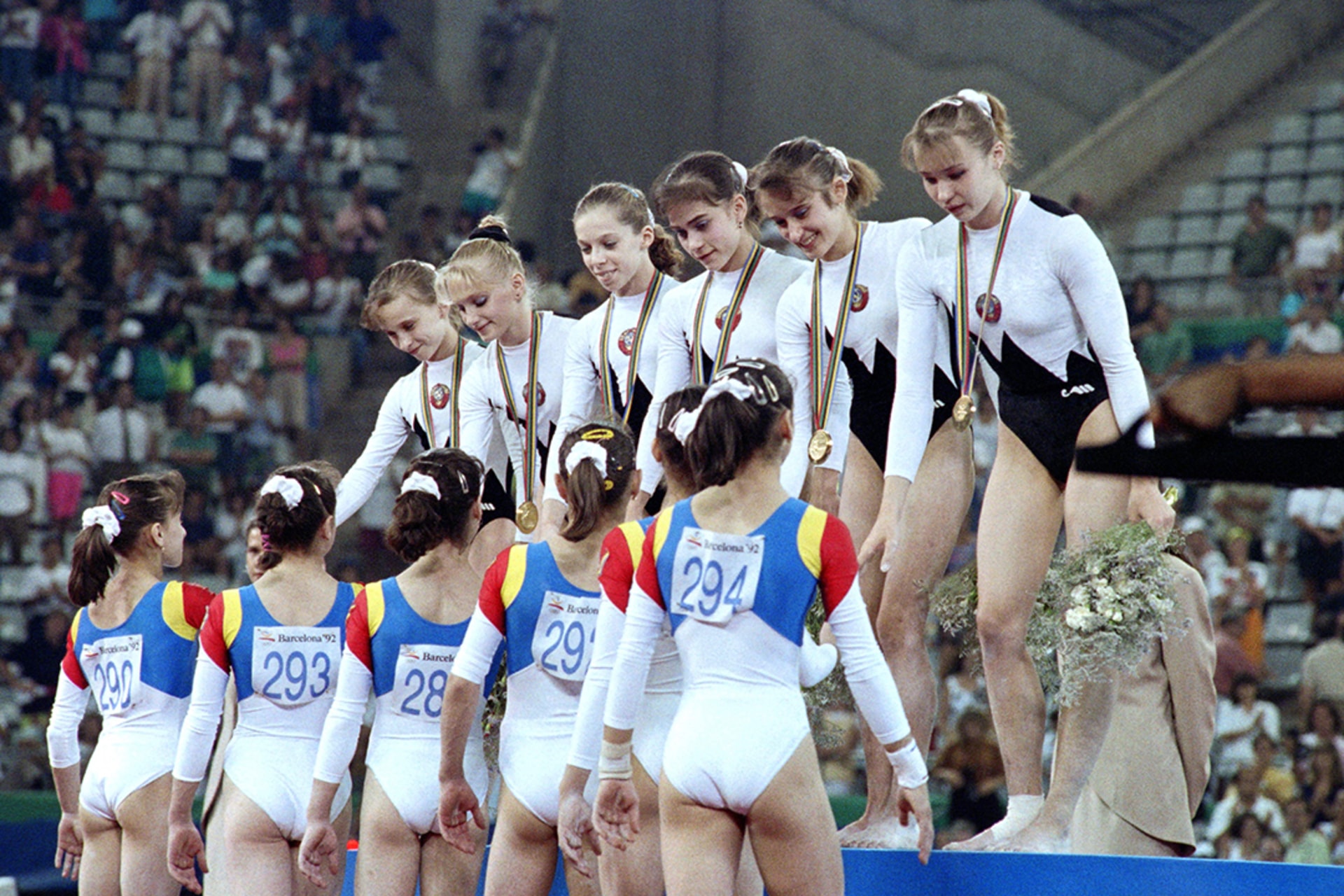
During the games in Barcelona, Spain, Germany competes under one flag for the first time in decades. South Africa, which finally disavowed apartheid, is allowed back after a thirty-two-year ban. Estonia, Latvia, and Lithuania all field separate teams, but the rest of the former Soviet Union compete under what it calls the Unified Team. Bosnia and Herzegovina, Croatia, and Slovenia also participate as separate nations for the first time. Yugoslavia, which had been sanctioned by the United Nations because of its military aggression against Bosnia and Herzegovina and Croatia, is banned from taking part in any team sports, but individual athletes are allowed to compete.
1996
Bombing in Atlanta
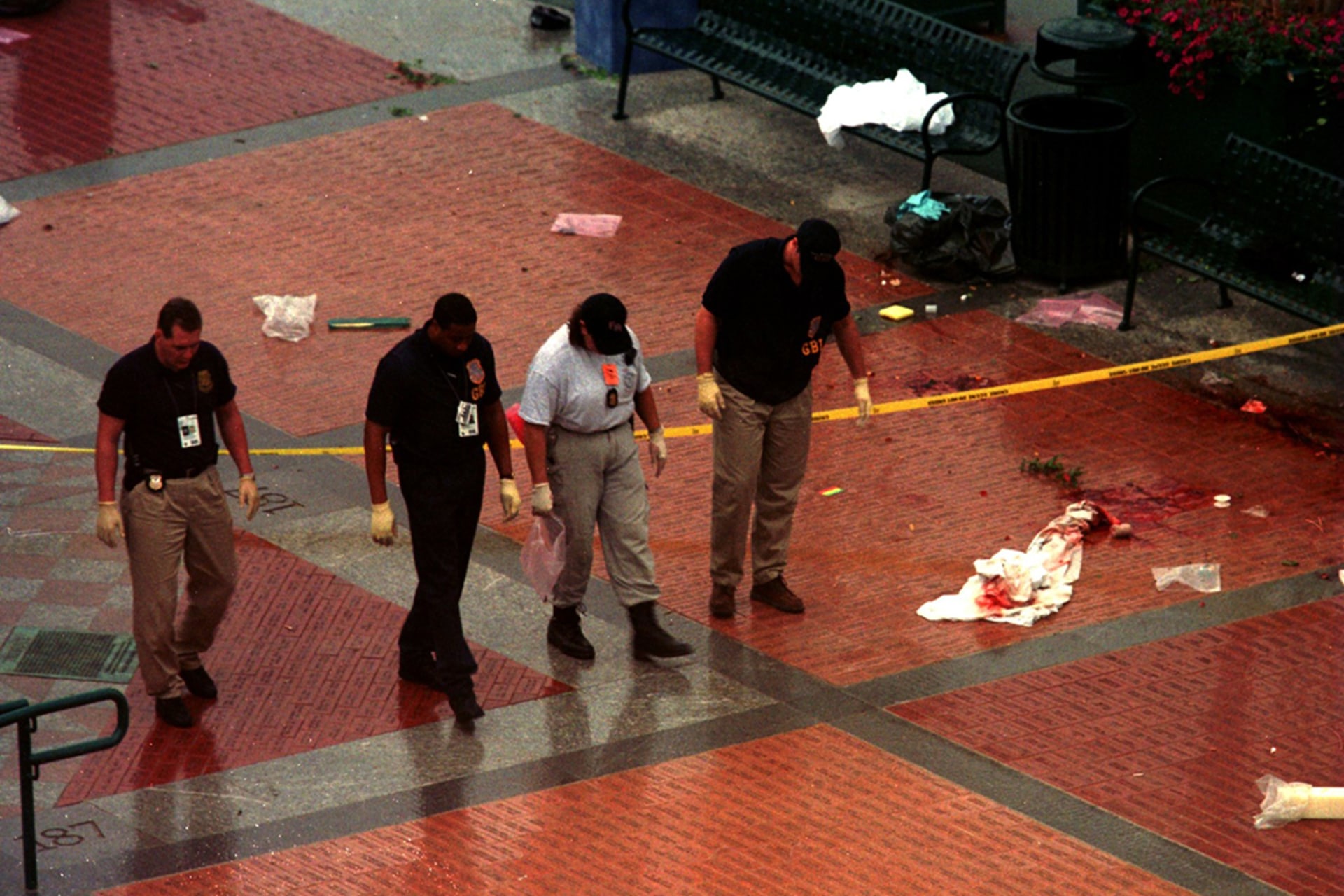
Early in the games, a pipe bomb explodes in Atlanta’s Centennial Olympic Park, killing two people and injuring more than one hundred. Officials decide that the games will continue. An American man, Eric Rudolph, is arrested in 2003. Two years later, he pleads guilty to the Atlanta bombing and several other attacks, expressing anti-government, anti-abortion, and anti-LGBTQ+ beliefs.
2000
Recognition for Indigenous Australians
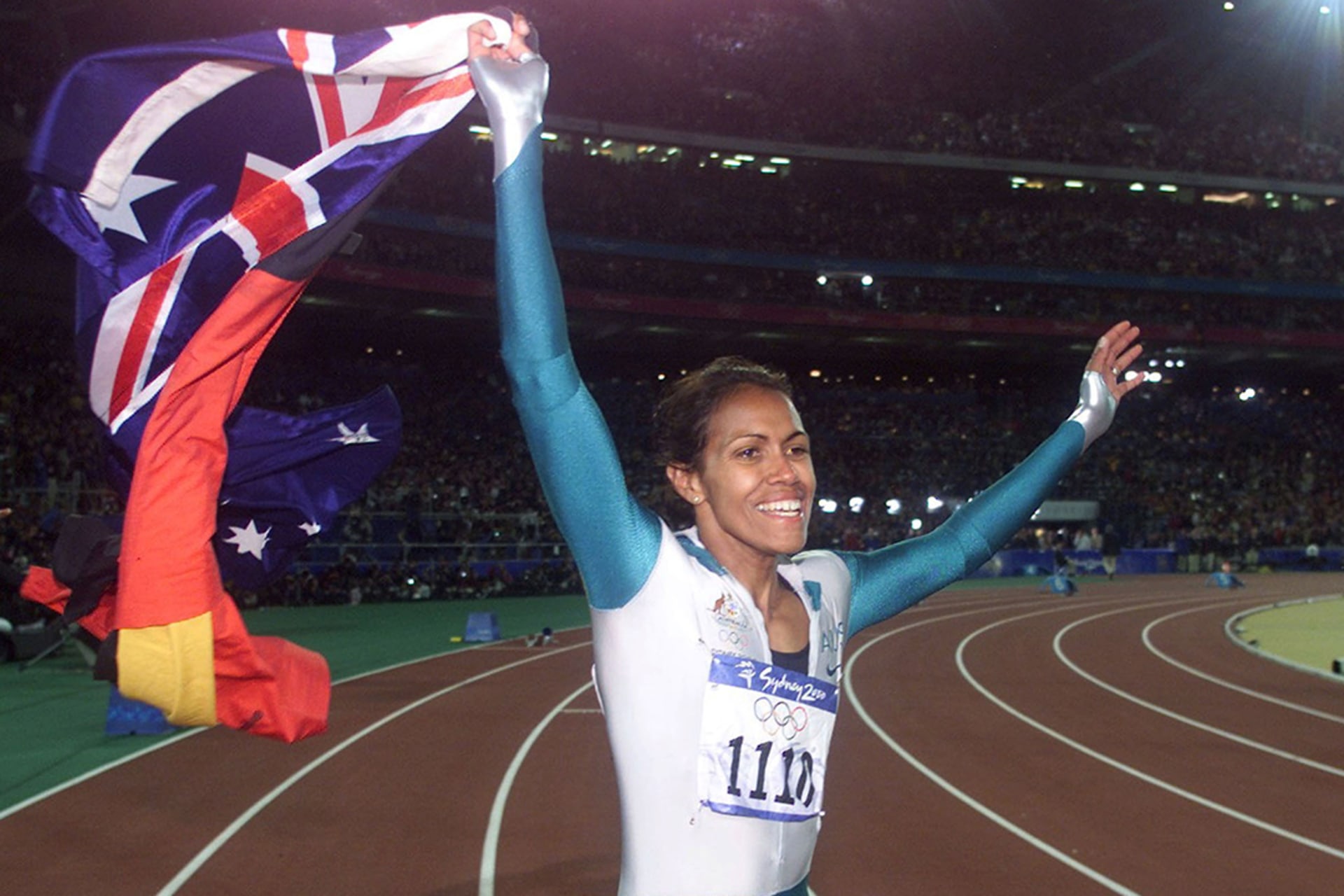
Runner Cathy Freeman of the Kuku Yalanji people, the first Indigenous Australian to earn a medal in an individual Olympic event, is chosen to light the Olympic flame in Sydney. The decision symbolizes Australia’s desire to reconcile its white and Indigenous populations. Ten days later, Freeman wins the four-hundred-meter final. It will be another eight years before the Australian government formally apologizes for past wrongs against Indigenous people.
2008
China’s Coming-Out Party
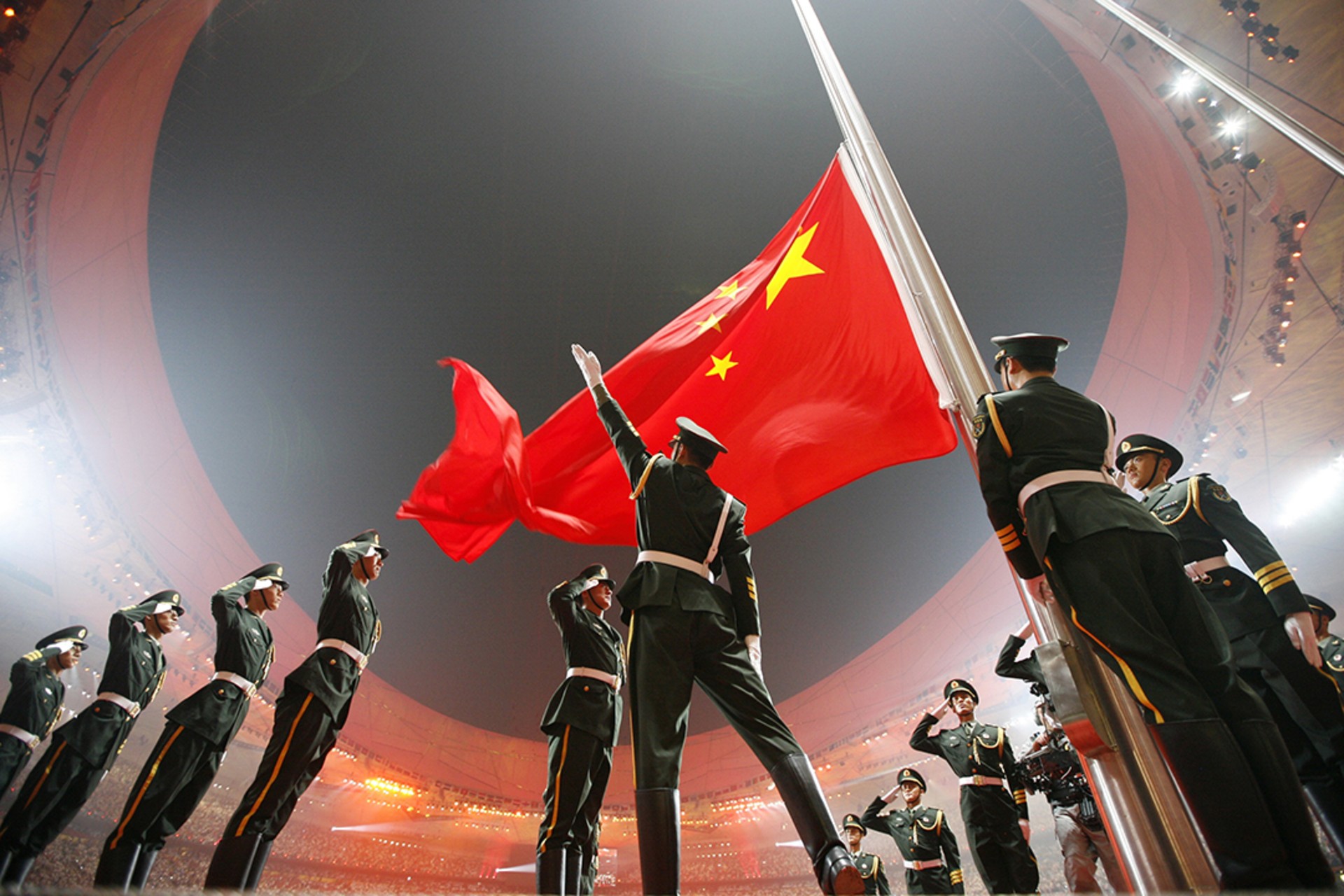
In 2001, when IOC officials select China as host for the first time, they acknowledge concerns about the government’s human rights record. At the same time, they express hope that the Olympics will spark positive change. But by 2008, the games provoke outrage from human rights groups, which say that allowing China to host legitimizes its repressive regime. These groups condemn the Chinese government for rights abuses, including in Tibet; environmental degradation; and its support for the Sudanese regime that perpetrated genocide in Darfur. For China, the games are an opportunity to signal its rising power in the world, and many observers refer to them as China’s “coming-out party.”
2014
Leaders Skip Sochi
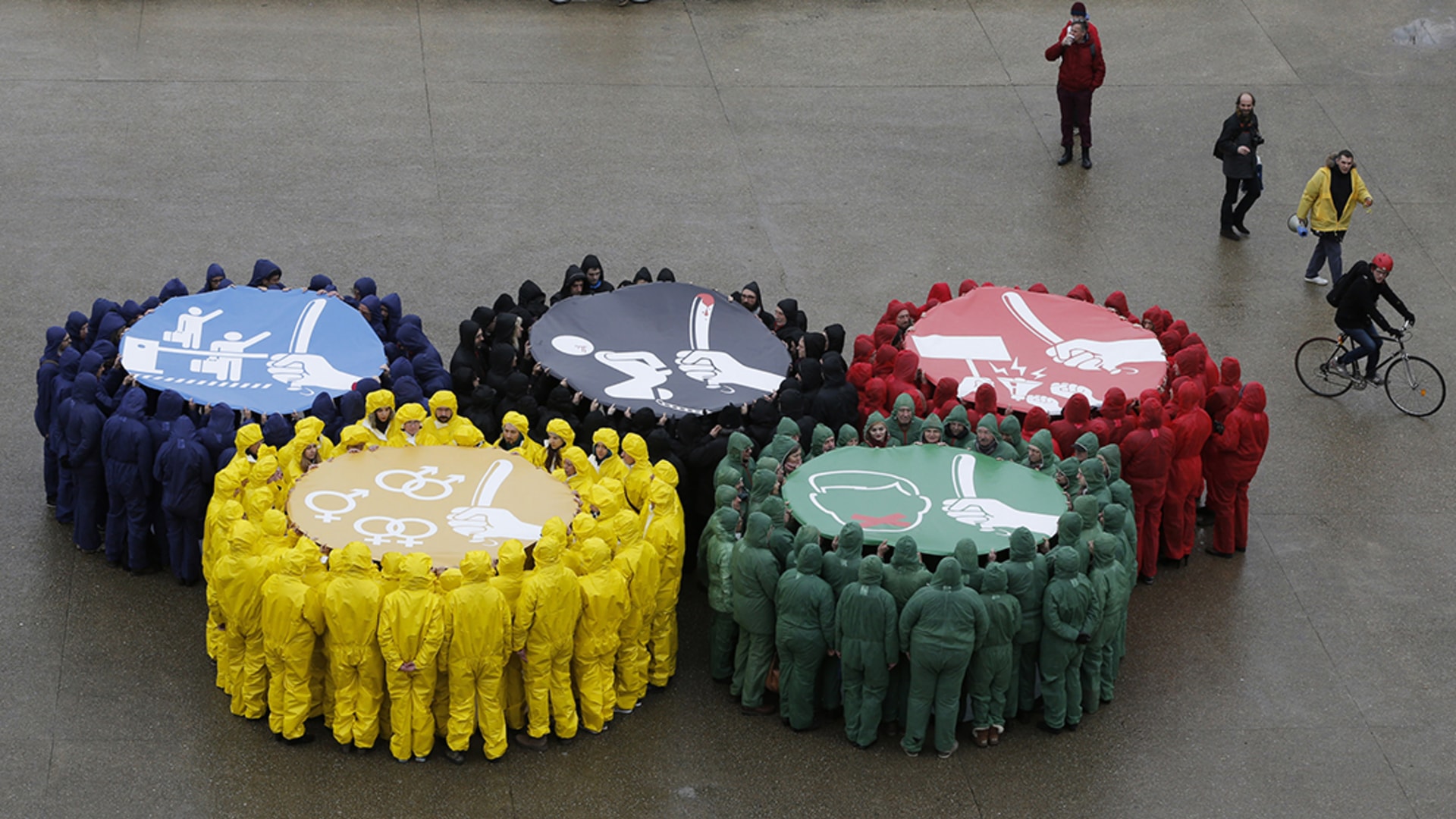
Activists in the United States and other Western countries call for a boycott of the Winter Olympics in Sochi, Russia, over a range of human rights issues in the country, including new laws critics say are anti-LGBTQ+. Several world leaders, including U.S. President Barack Obama, UK Prime Minister David Cameron, and German Chancellor Angela Merkel, do not attend the opening ceremony. The head of the IOC, Thomas Bach, criticizes the move: “Sport can only contribute to the development of peace if it’s not used as a stage for political dissent,” he says.
2016
Refugee Team in Rio
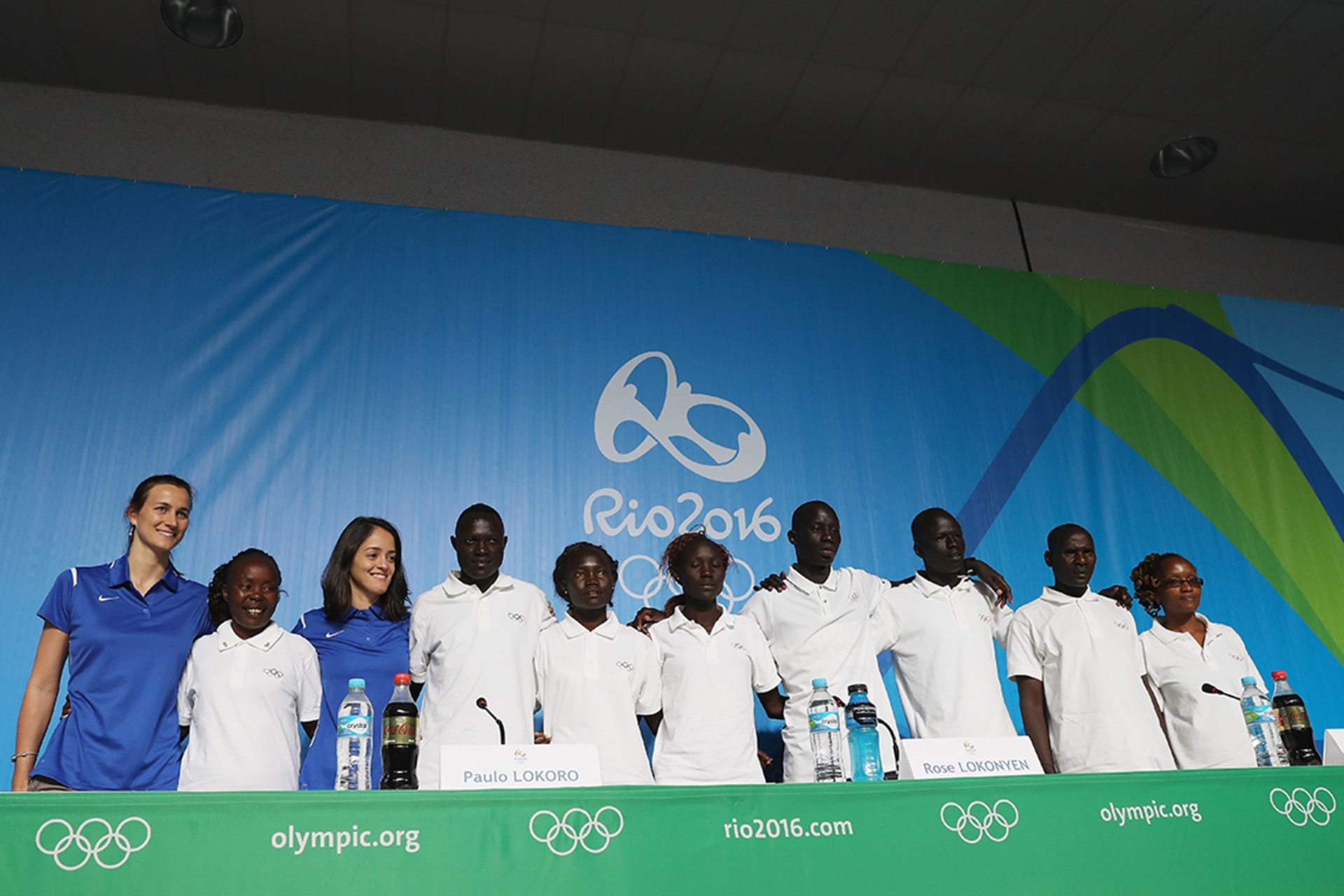
For the first time, a Refugee Olympic Team competes at the games. The team comprises ten athletes who fled their home countries, including the Democratic Republic of Congo and Syria. Bach announces the creation of the team a year earlier, at the height of Europe’s migrant crisis, during which some 1.3 million people applied for asylum.
2018
Korean Peace Olympics
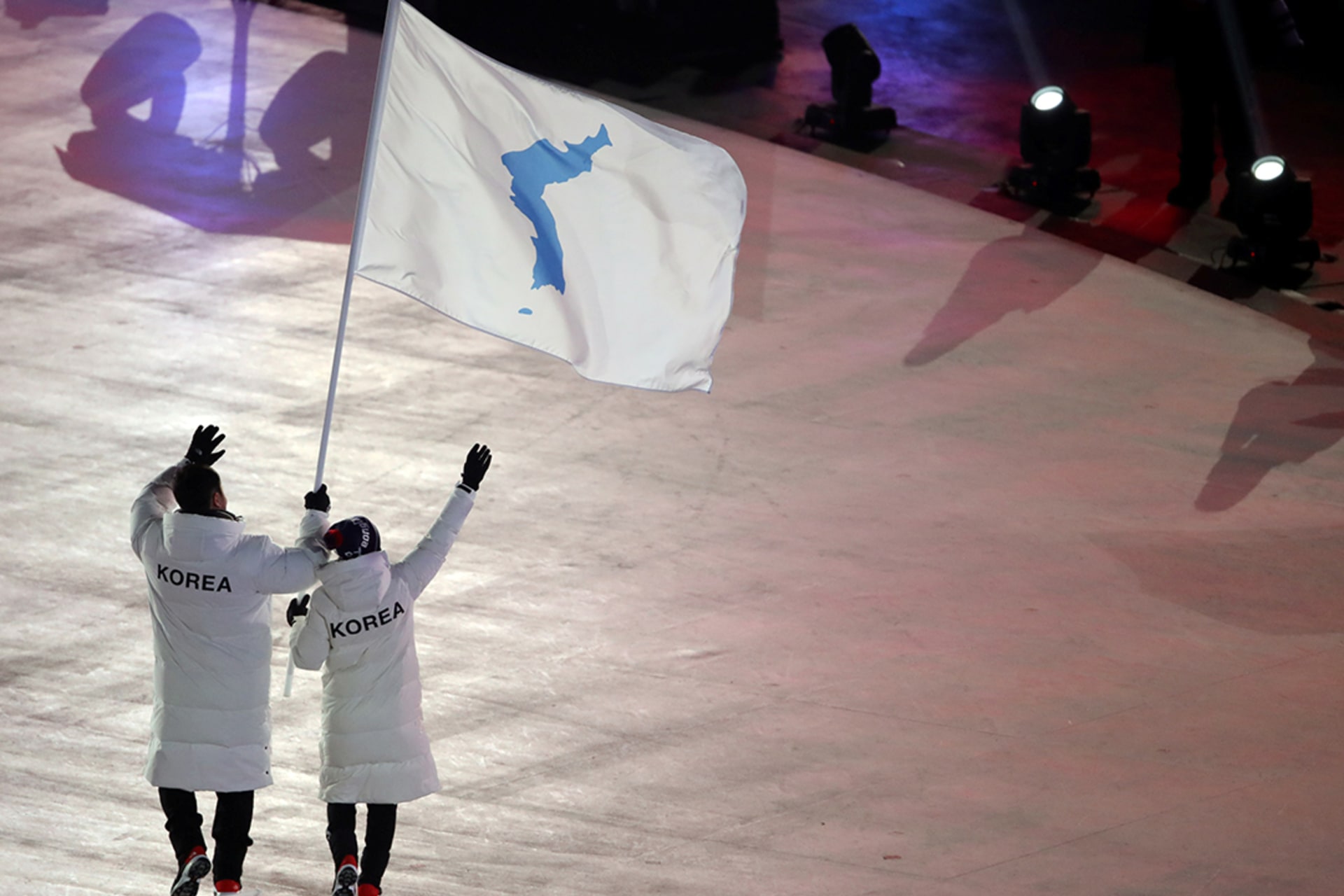
South Korean President Moon Jae-in aims to use the winter games in Pyeongchang to boost inter-Korean ties. Athletes from North and South Korea march together during the opening ceremony, waving white flags that show the Korean Peninsula. By the end of the games, the North Korean delegation says Pyongyang is willing to restart a dialogue with Washington and invites Moon to visit North Korea. Later that year, U.S. President Donald Trump and North Korean leader Kim Jong-un meet for the first of several summits, though the talks ultimately yield few concrete results.
2019
Ban on Russia
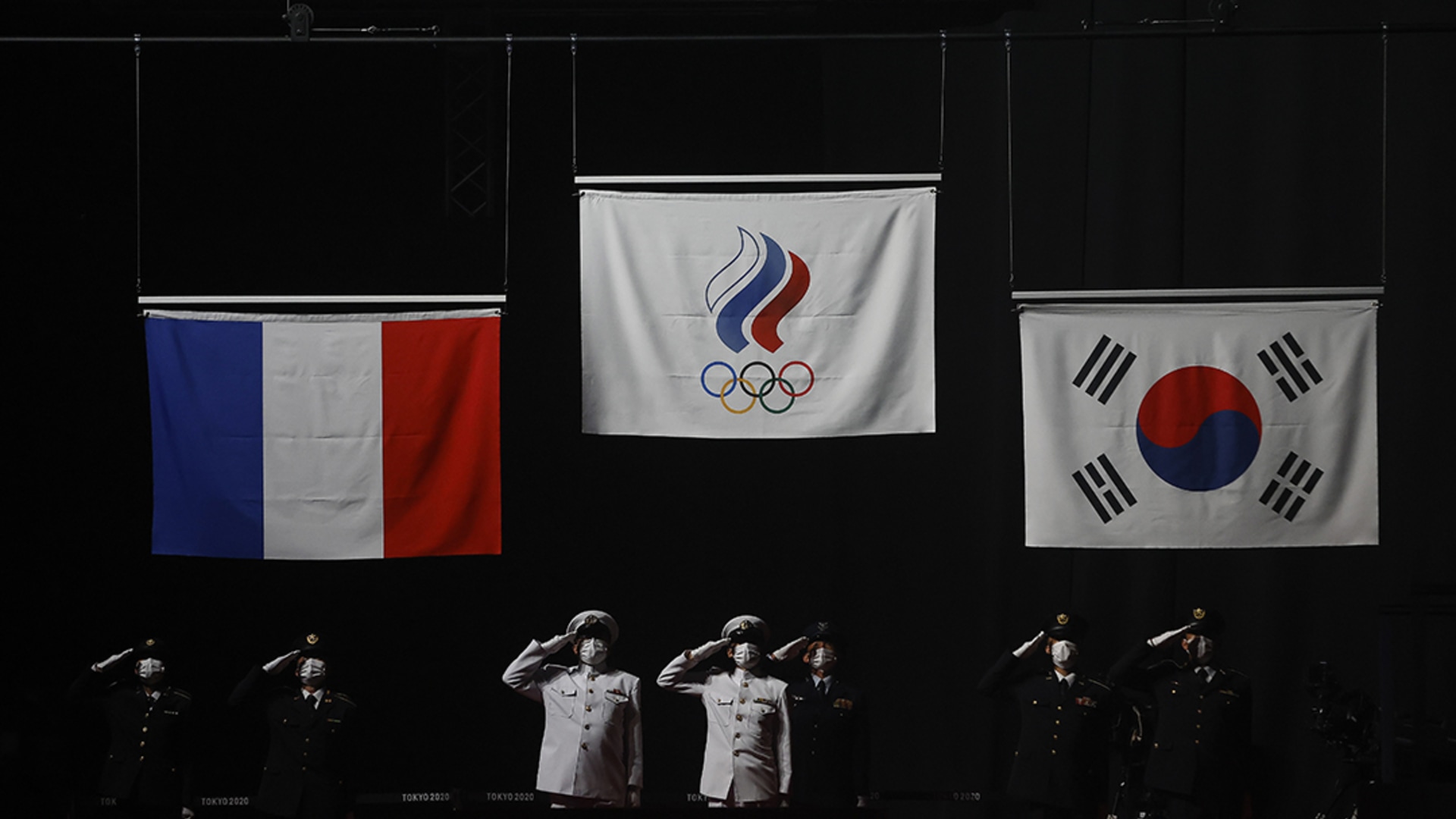
The World Anti-Doping Agency bans Russia from the Olympics and other international sports competitions for four years after evidence emerges that Russian authorities manipulated drug-testing data to cover up a yearslong, state-sponsored doping scheme. Russian athletes are still allowed to compete on a neutral team. Russian President Vladimir Putin dismisses the allegations, saying the ban is “based on political considerations.”
2021
Pandemic Games
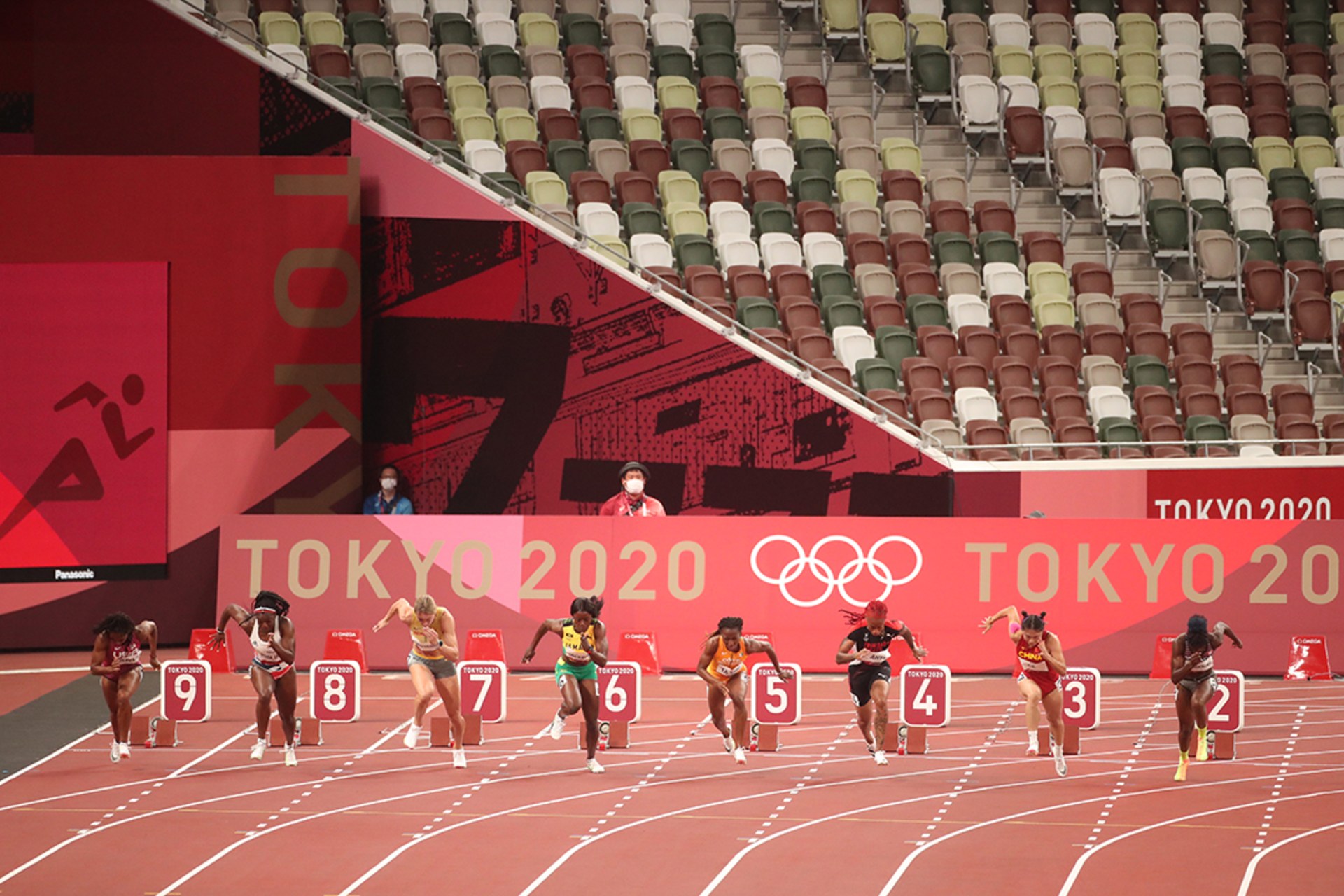
Amid the COVID-19 pandemic, the Olympics are postponed for the first time ever. Originally scheduled for 2020, the summer games are held in Tokyo a year later. As COVID-19 cases rise and vaccination rates lag in the months leading up to the games, public opposition in Japan grows, with some critics accusing the government of jeopardizing public health for economic and political gain. Japanese officials insist that the games should go on. No spectators are allowed to attend, and athletes are frequently tested for the virus. Health experts say the games do not cause a new surge in infections.
2022
February 2022
Beijing Diplomatic Boycott
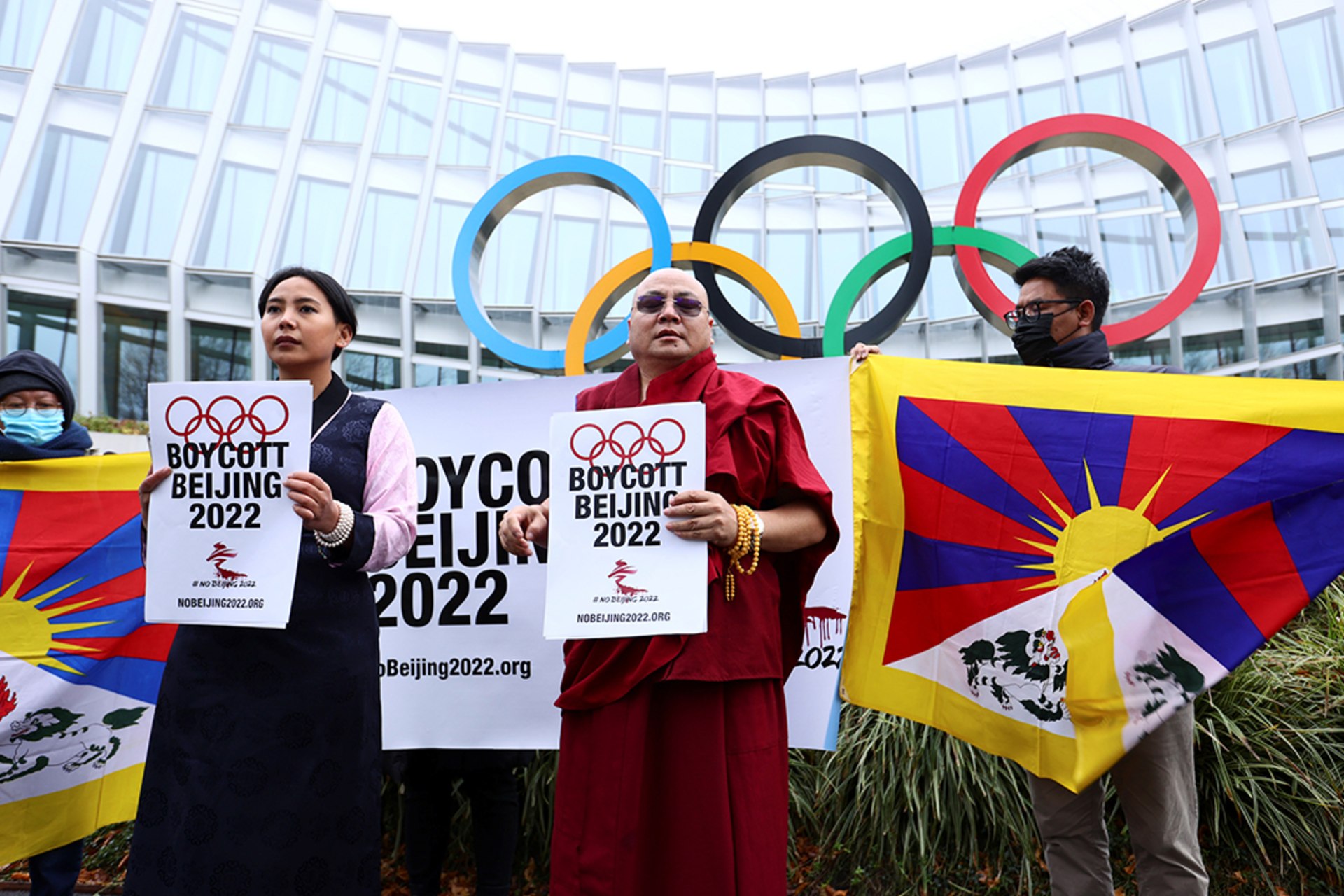
The United States declares a diplomatic boycott of the Winter Olympics in Beijing, citing the Chinese government’s human rights abuses, including against Uyghurs and other Muslims in the Xinjiang region. A handful of U.S. allies, including Australia, Canada, and the UK, follow suit. The IOC opposes the boycotts and reaffirms that it maintains a neutral position on political issues. The disappearance of Chinese tennis star Peng Shuai from public view months ahead of the games increases the international pressure. The IOC attempts to ease concerns by holding video calls with Peng, and Bach meets with her during the games.
March 2022
Ban Over Russian Invasion
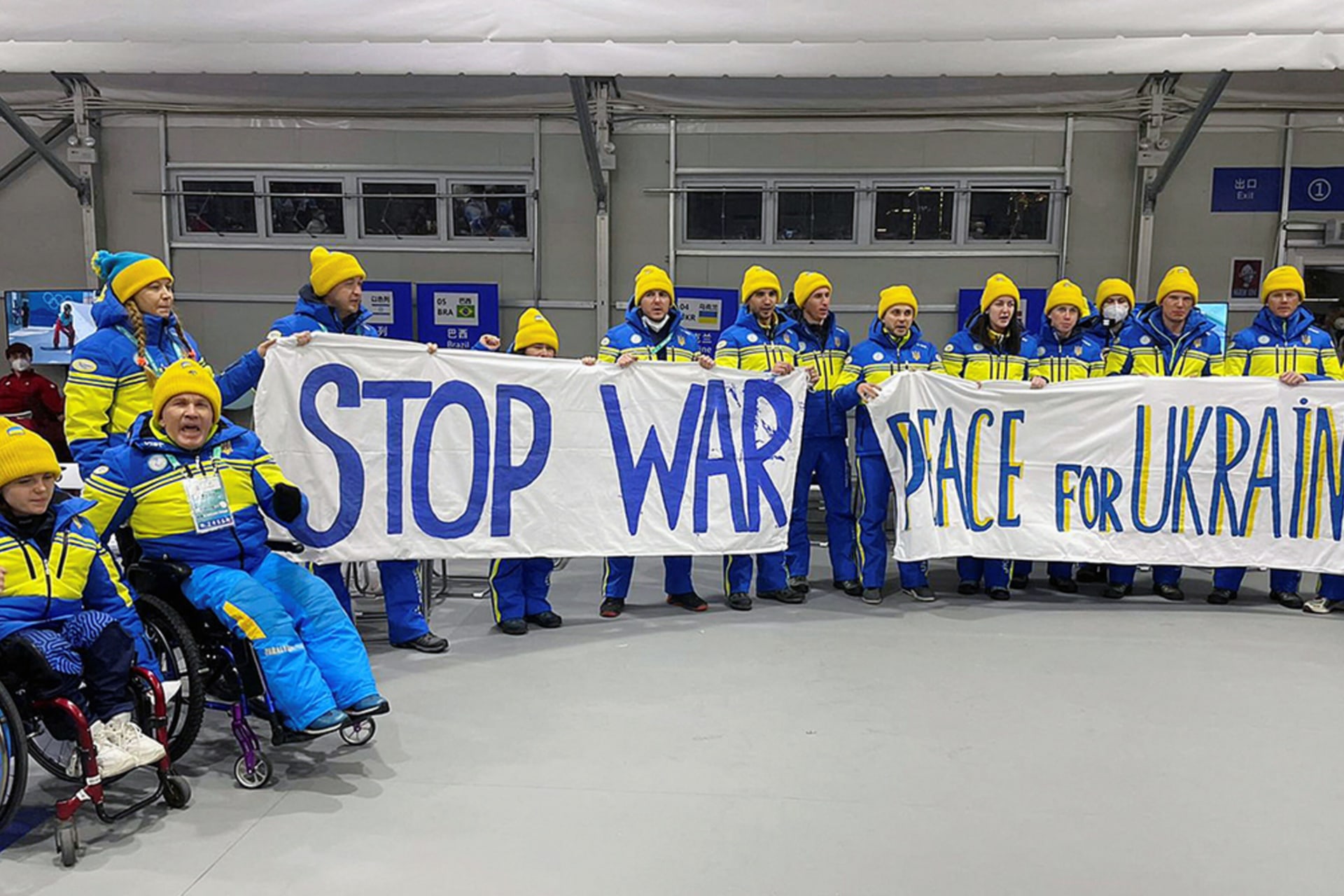
A day before the Paralympic Winter Games begin in Beijing, the International Paralympic Committee (IPC) bans Belarusian and Russian athletes from competing due to Russia’s invasion of Ukraine and Belarus’s support for Moscow. Citing boycott threats by other countries and athletes, the IPC president says the participation of the more than eighty athletes from Belarus and Russia would jeopardize the games. The Russian Paralympic Committee says the decision contradicts the “apolitical nature of sport.”
2024
June 2024
Russia Ramps Up Disinformation
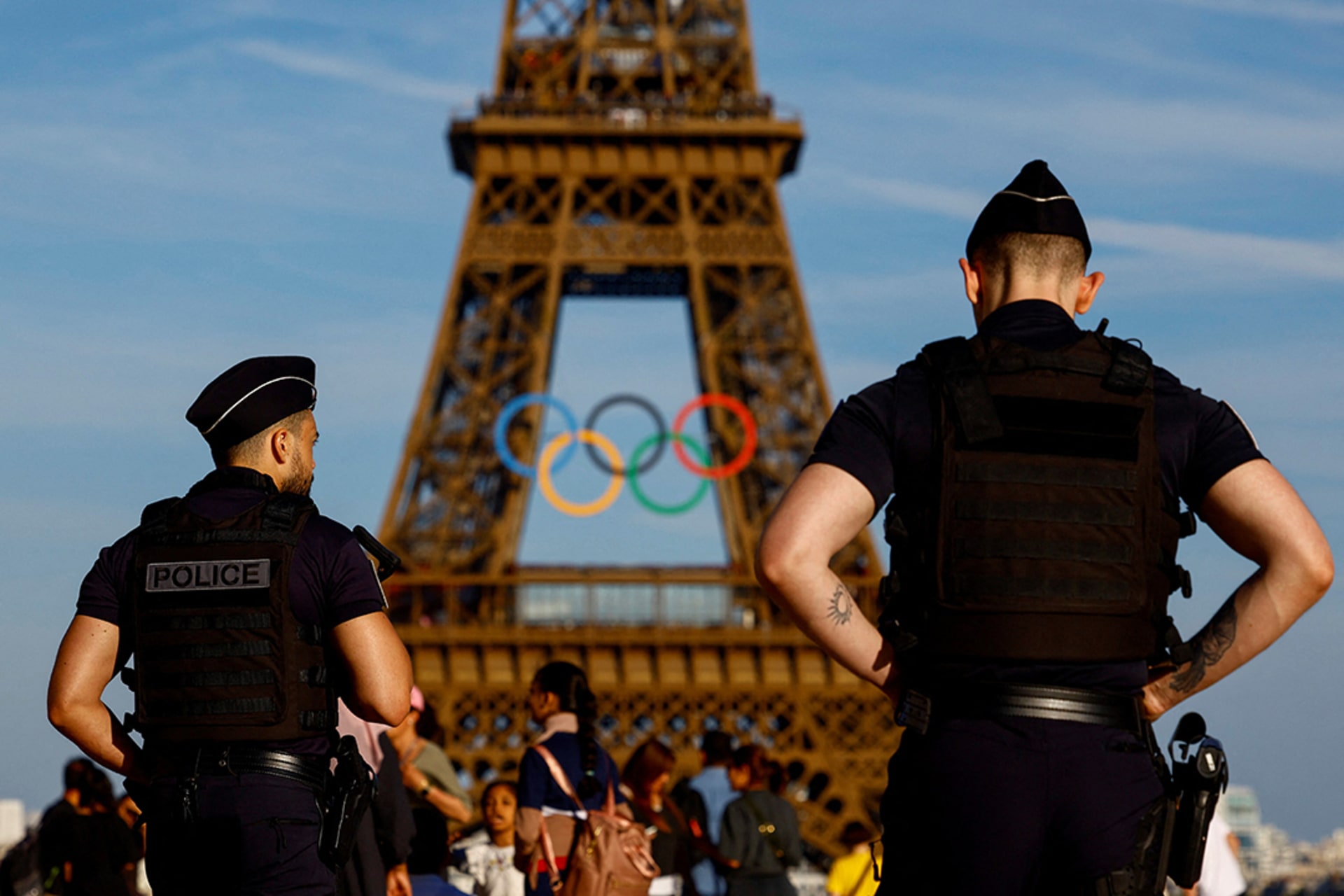
With Russian athletes still banned from competing under their own flag due to the invasion of Ukraine, Moscow takes several steps to sow chaos in Paris ahead of the July–August Summer Games. Individual Russian and Belarusian athletes are permitted to participate only under a neutral status. Athletes who “actively support the war” are not eligible to compete, including Russian wrestler Abdulrashid Sadulaev, a reigning Olympic champion. Just fifteen athletes from Russia are set to compete, compared to more than three hundred at the Tokyo games in 2021. In June, tech firm Microsoft warns that Russia is using artificial intelligence (AI) to fuel fears that there will be violence and terrorist threats during the Olympics. That same month, Russia hosts its own “BRICS Games” in the northern Russian city of Kazan, with dozens of countries in attendance. It plans another international sporting event for 2025.
Editor’s note: This timeline is based on an audio timeline narrated by Frank Deford that was previously published on CFR.org in 2008.